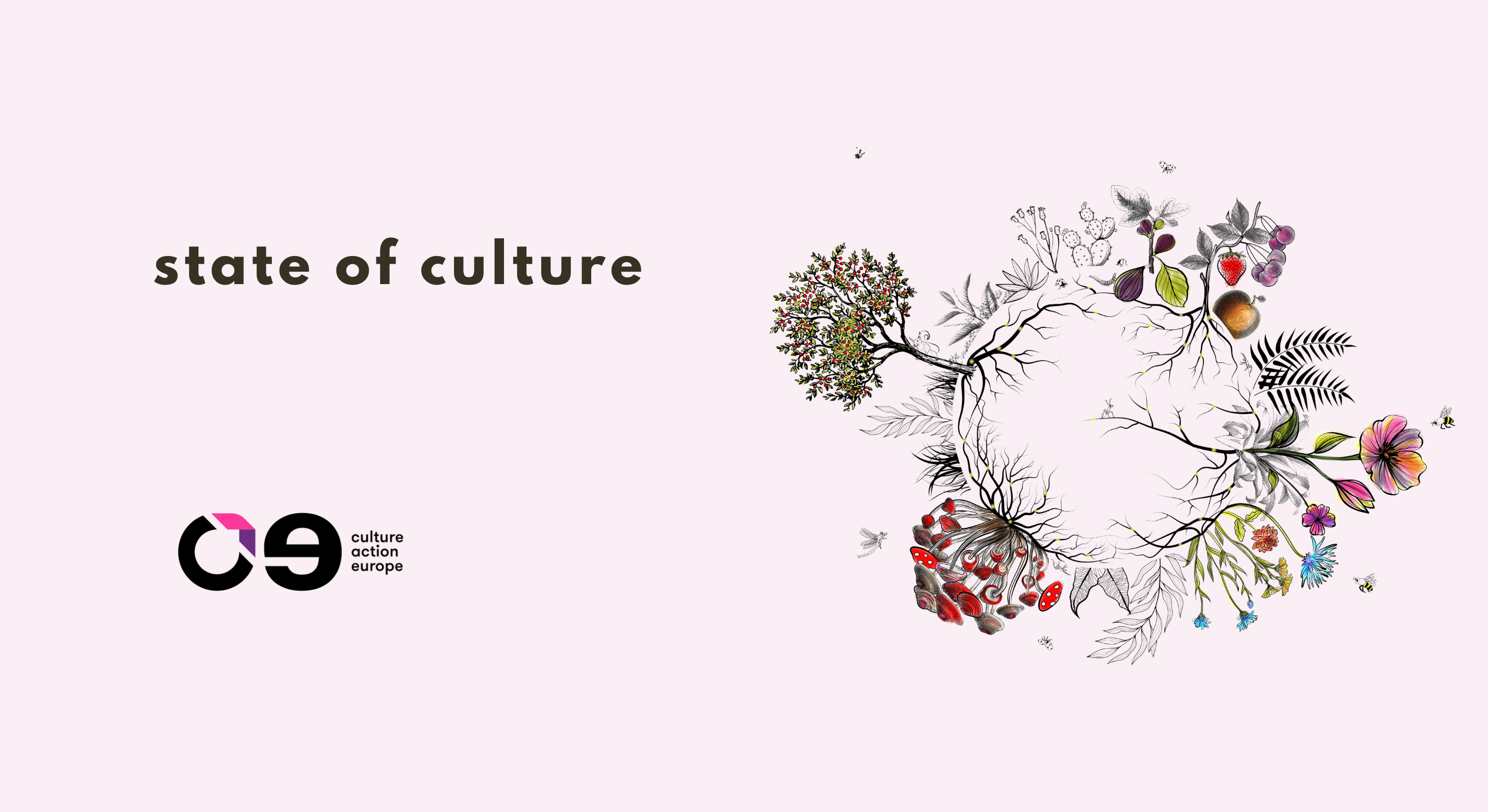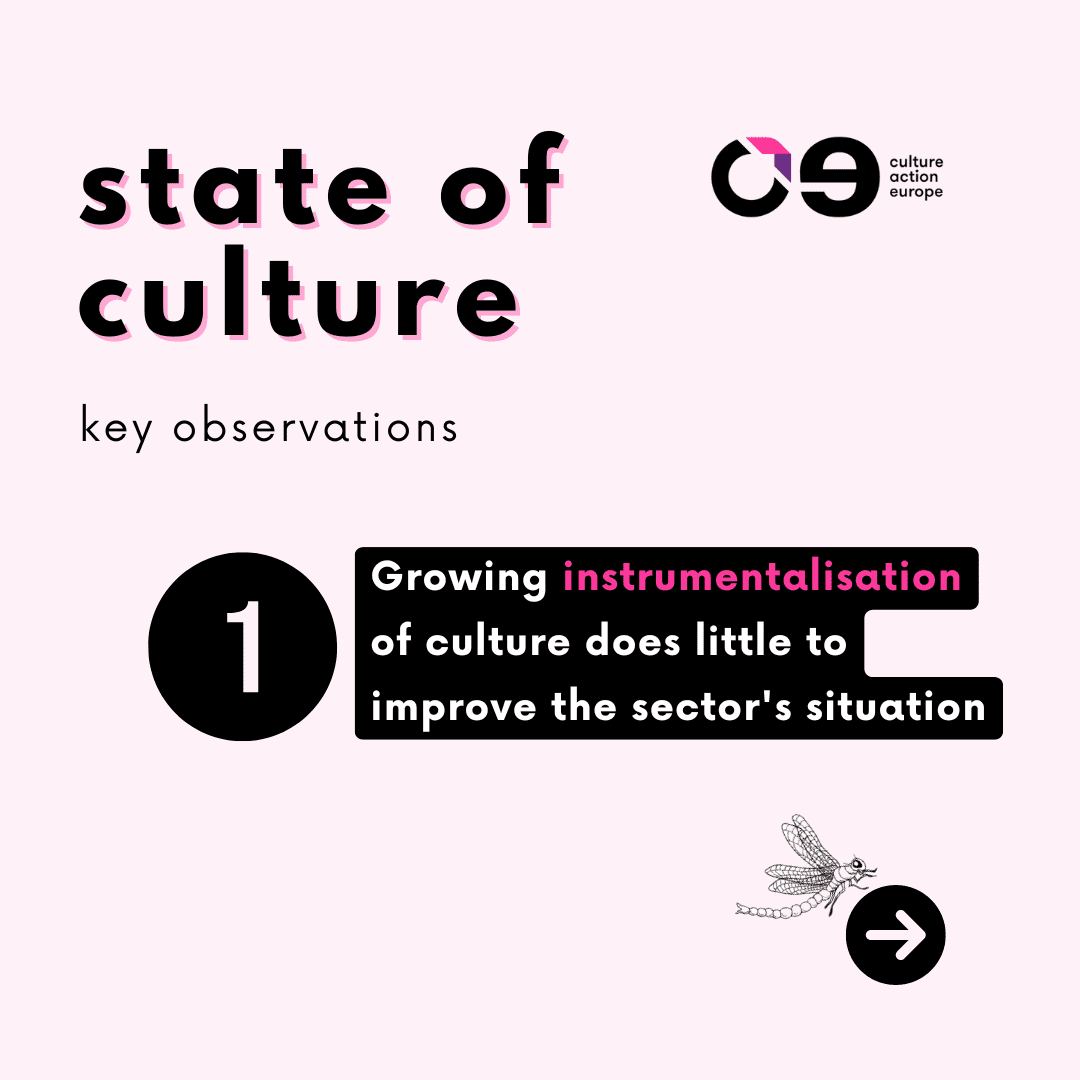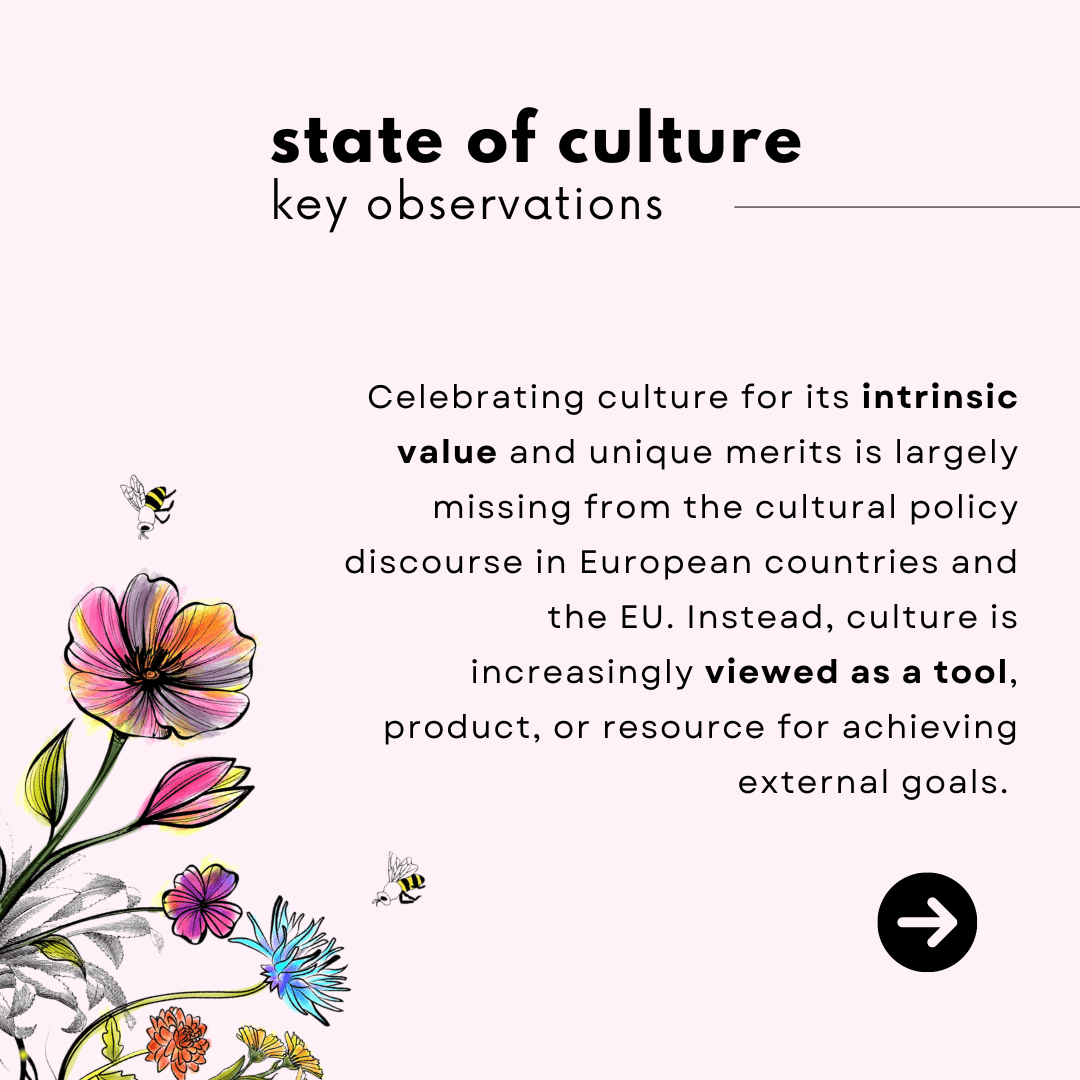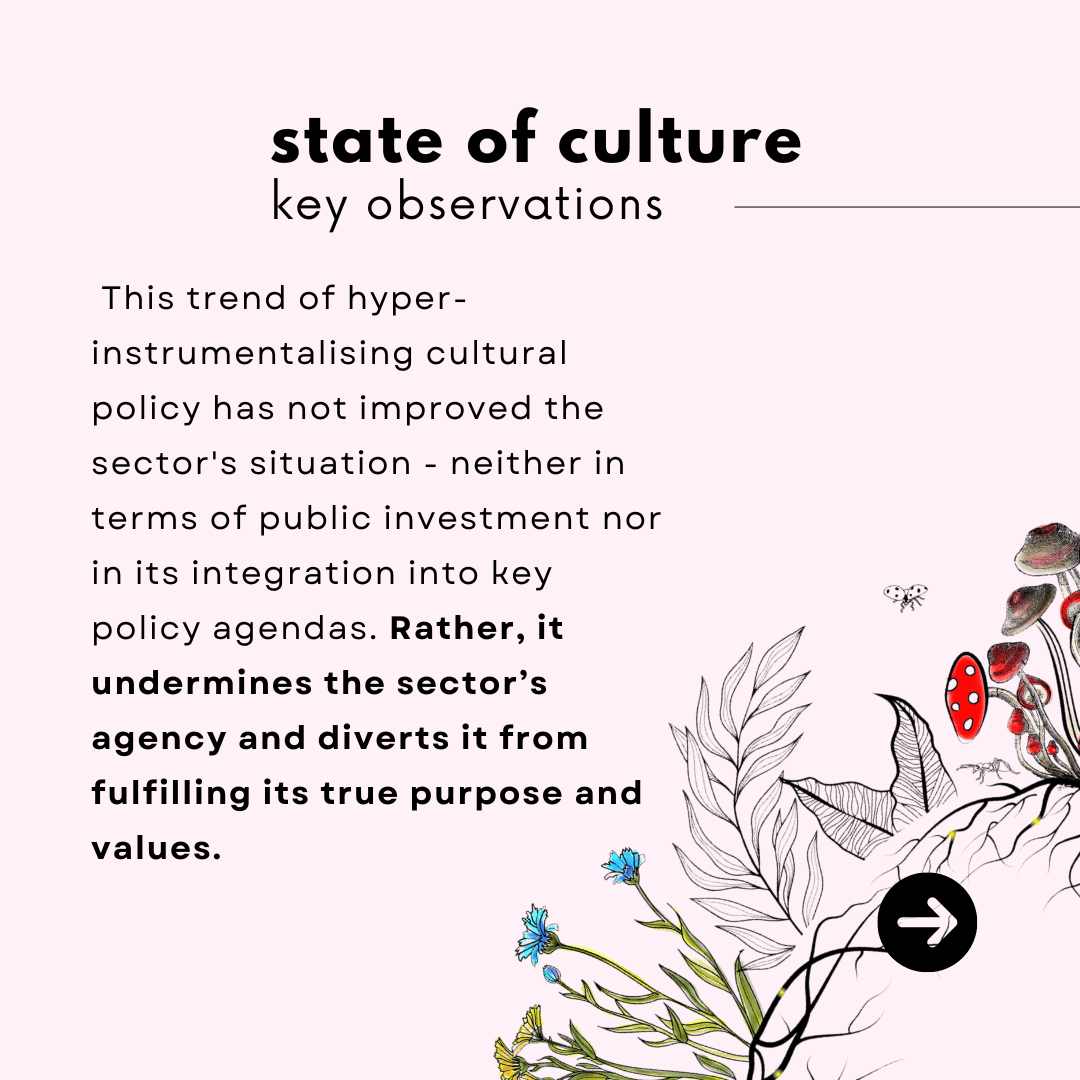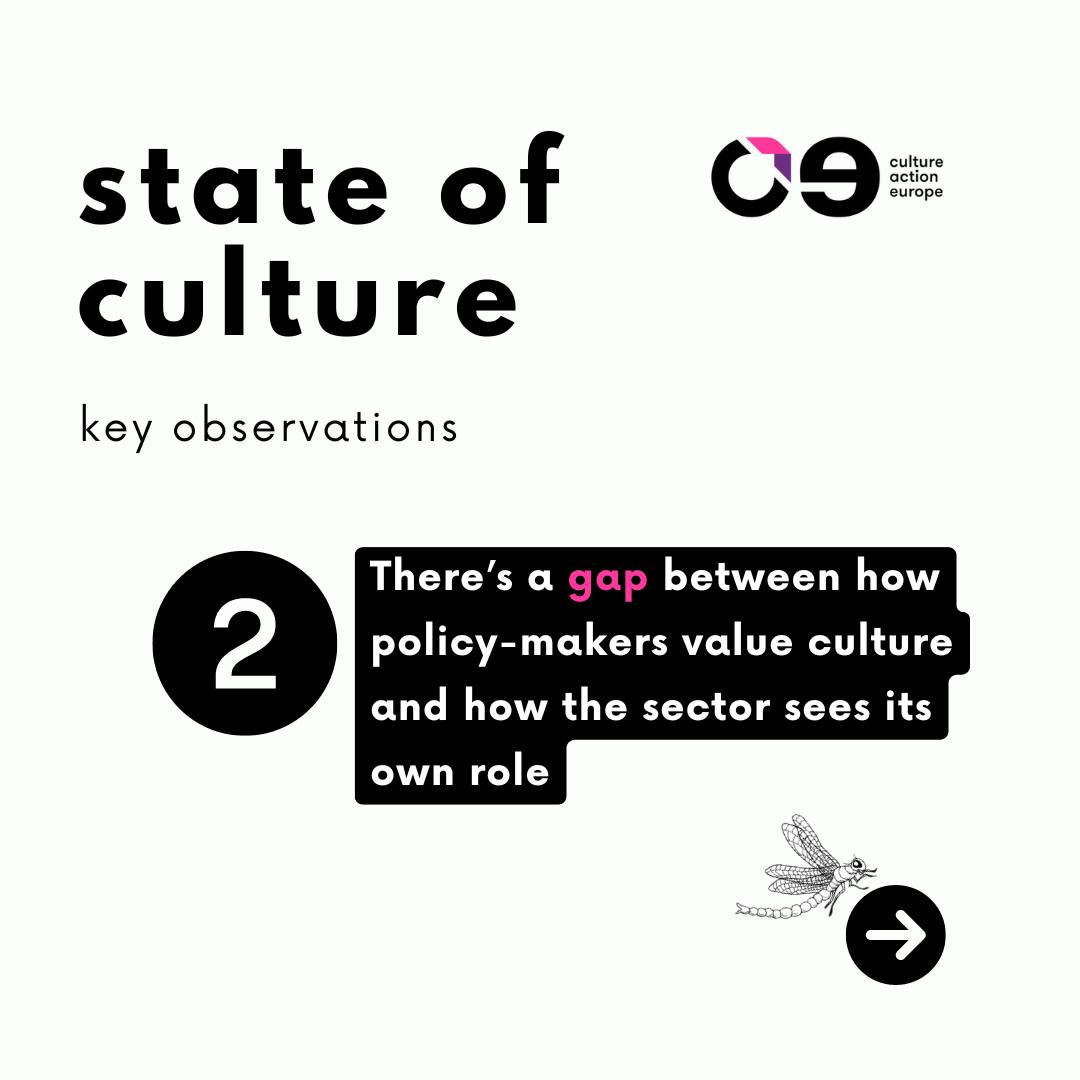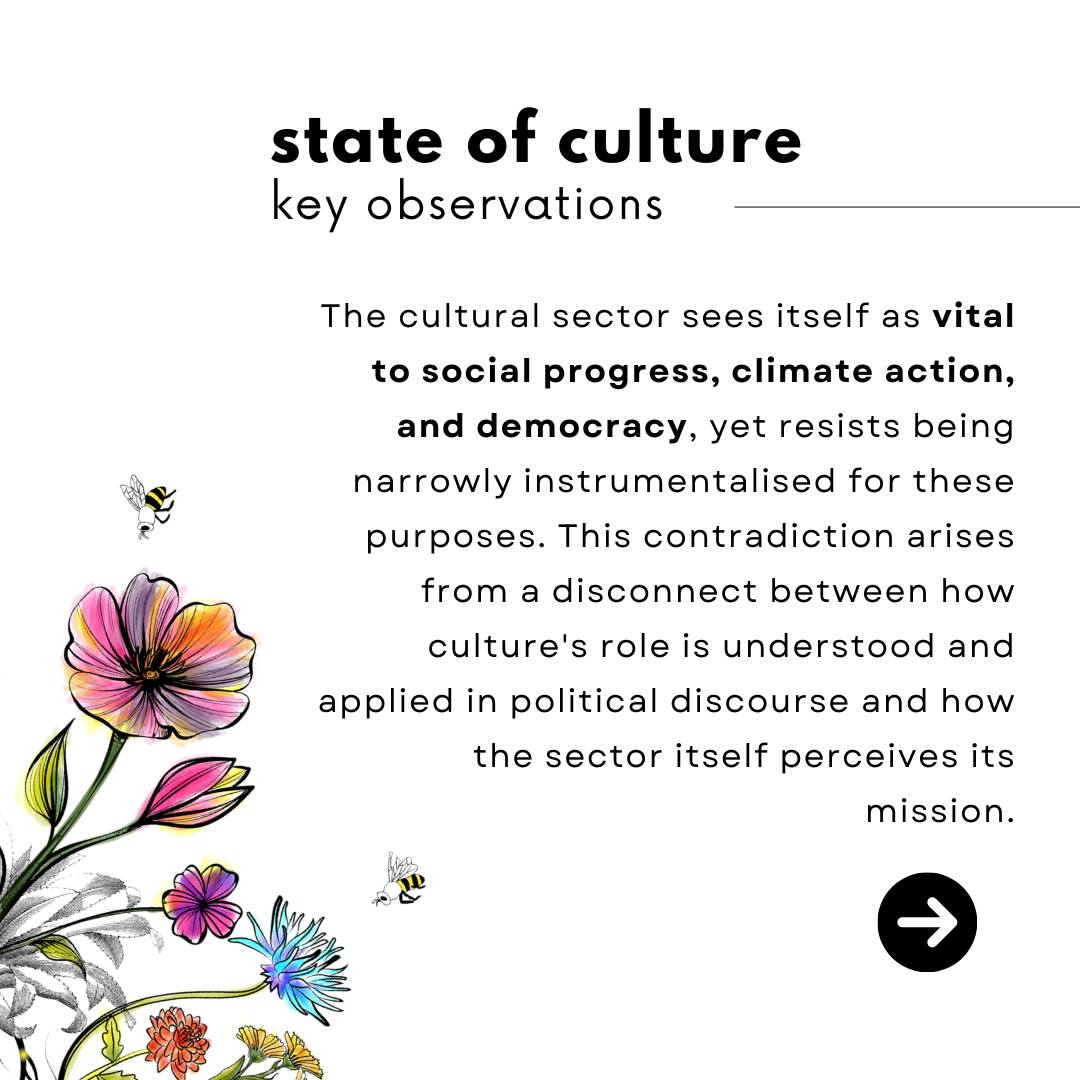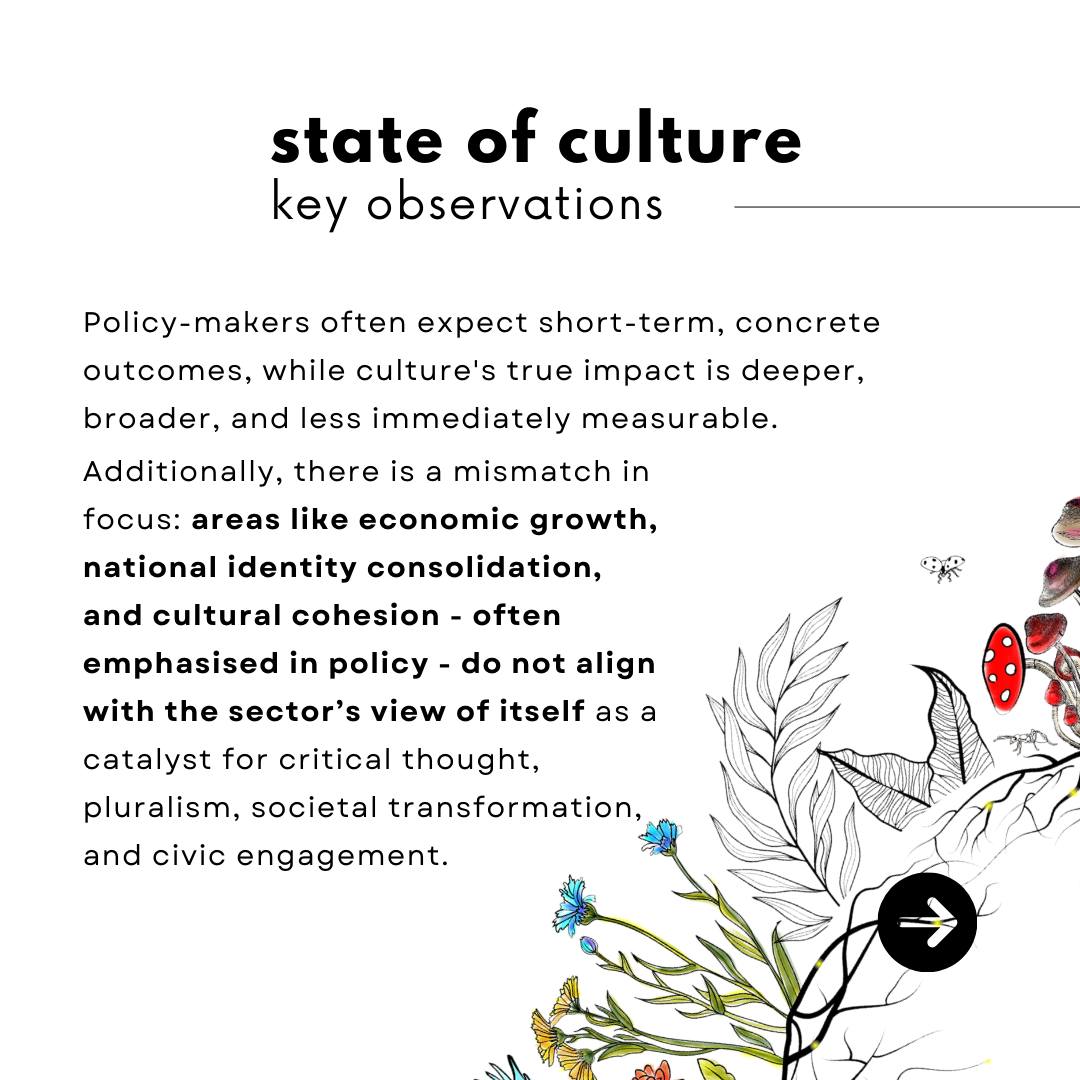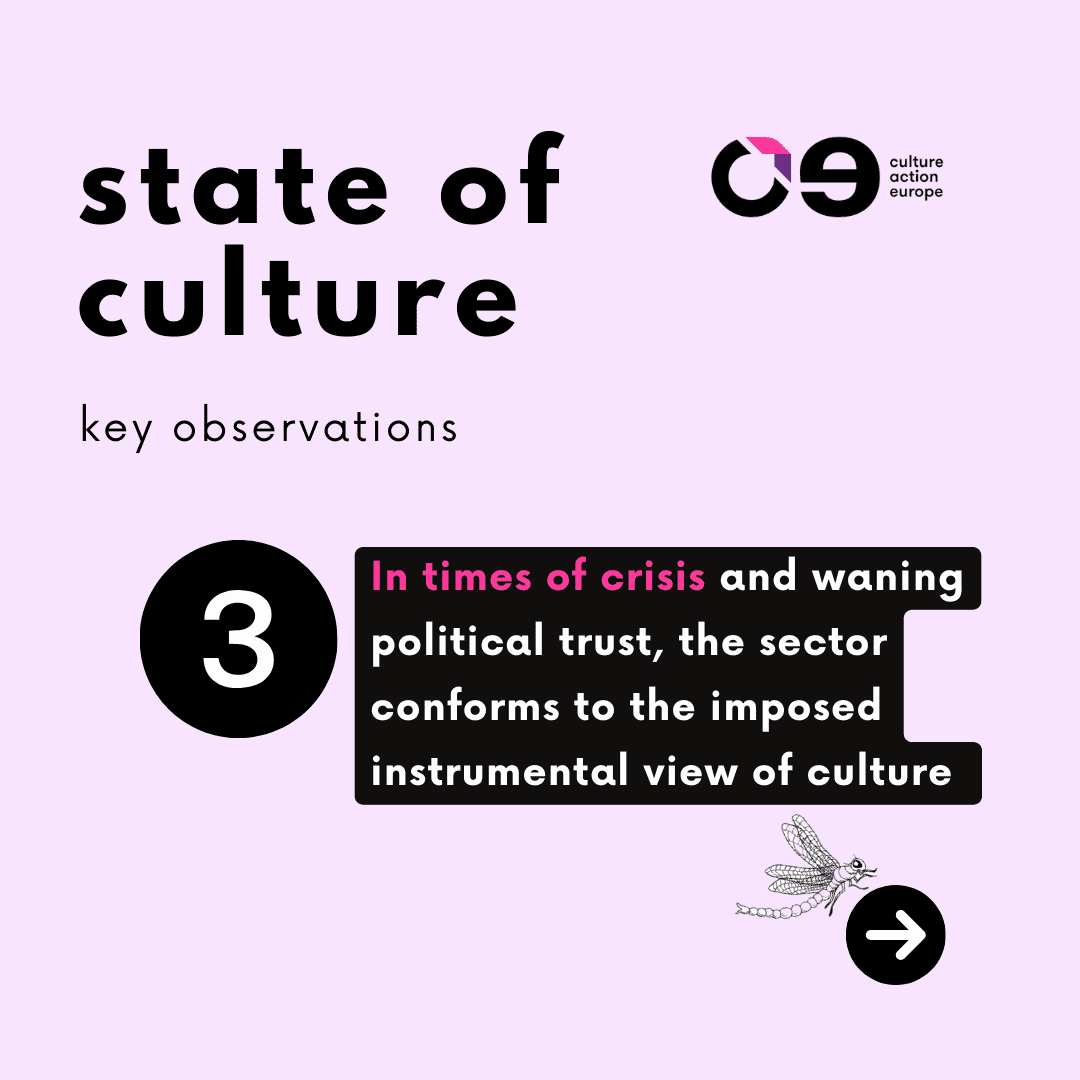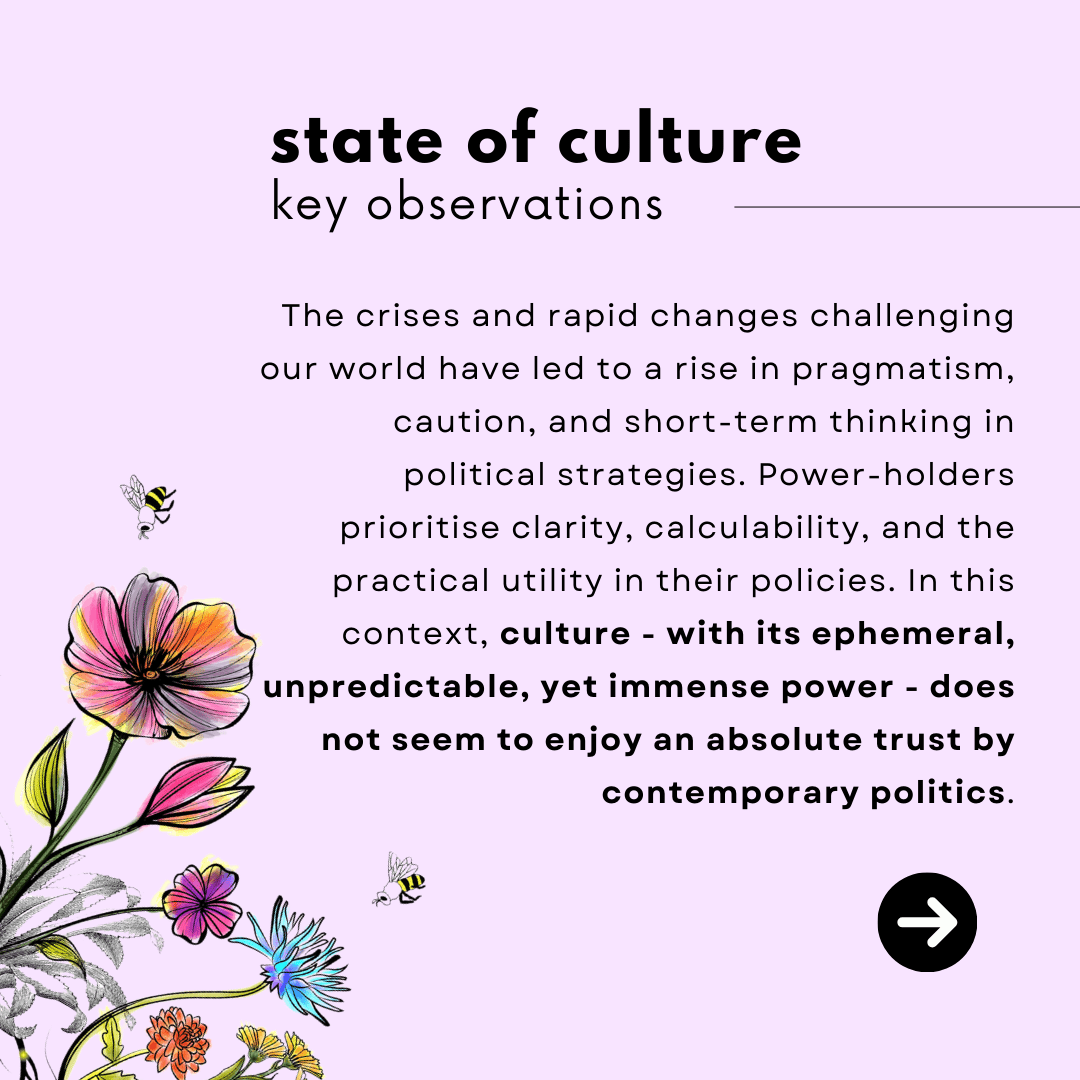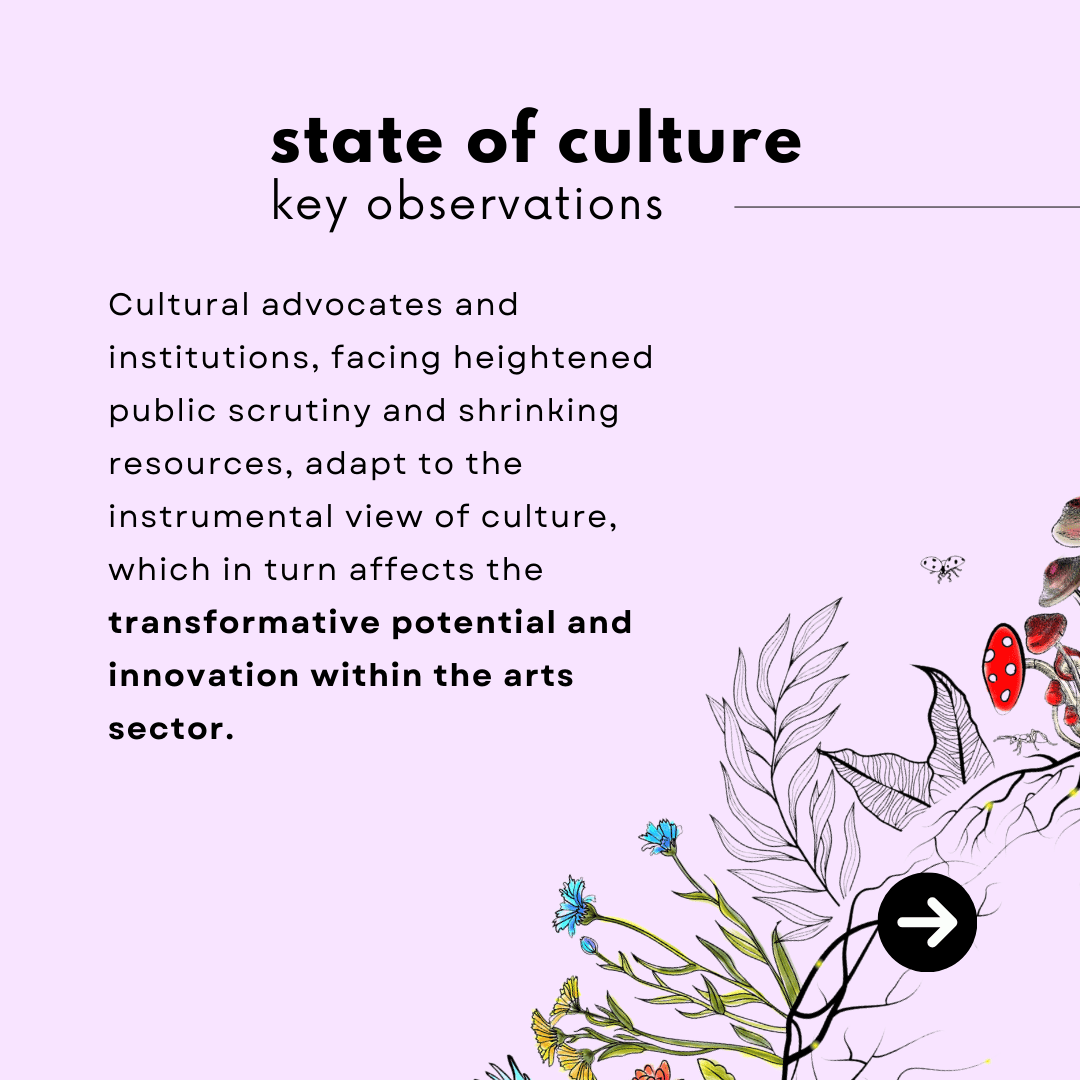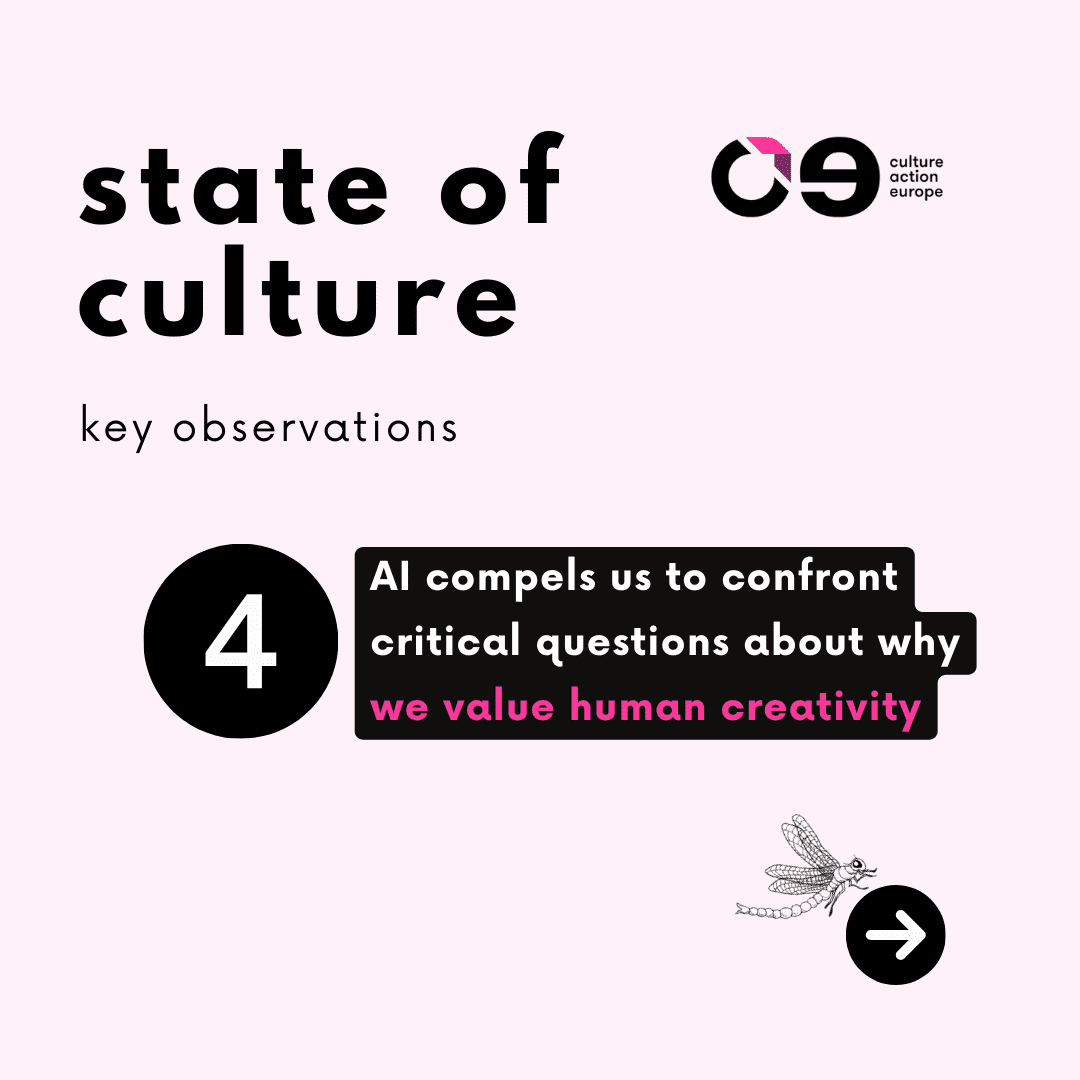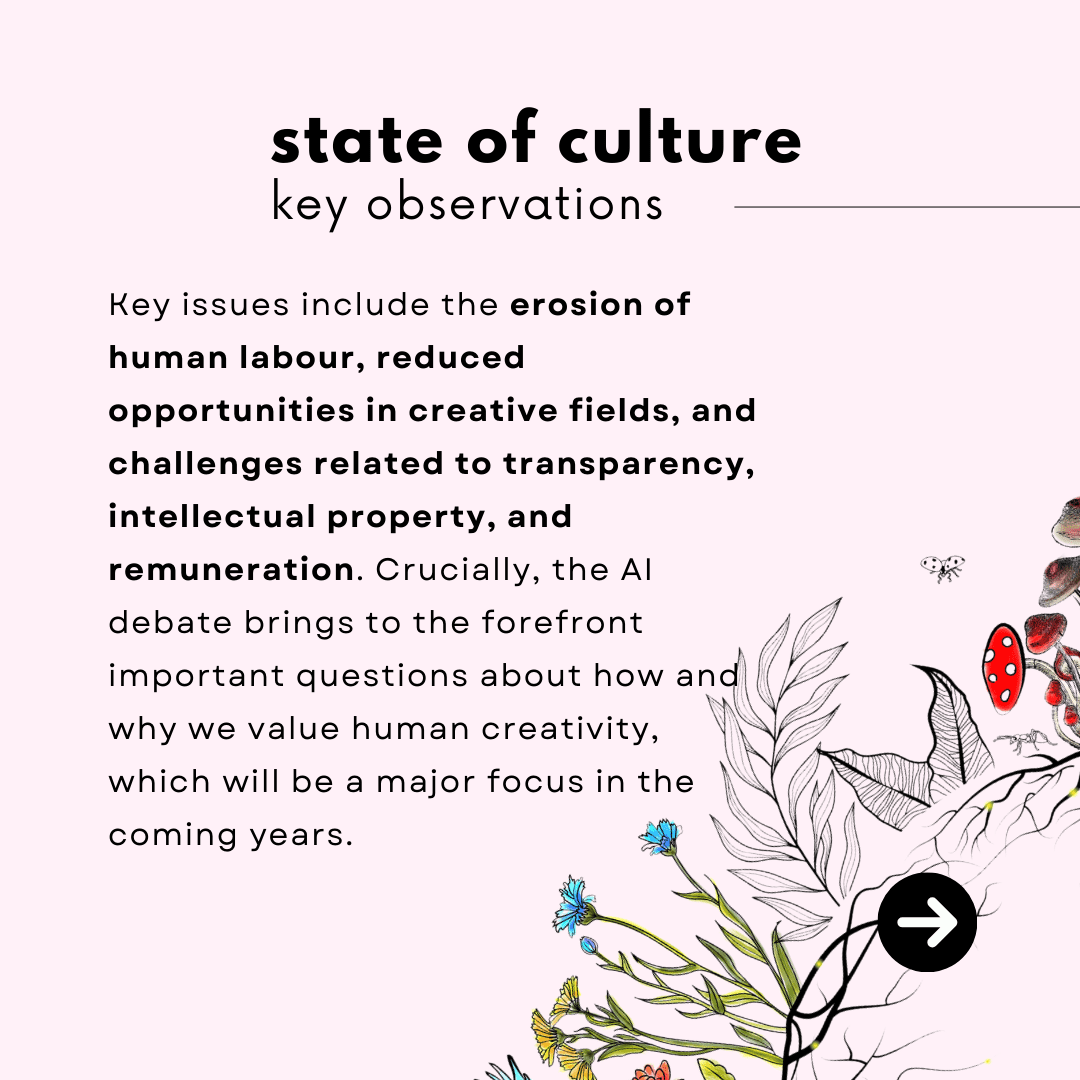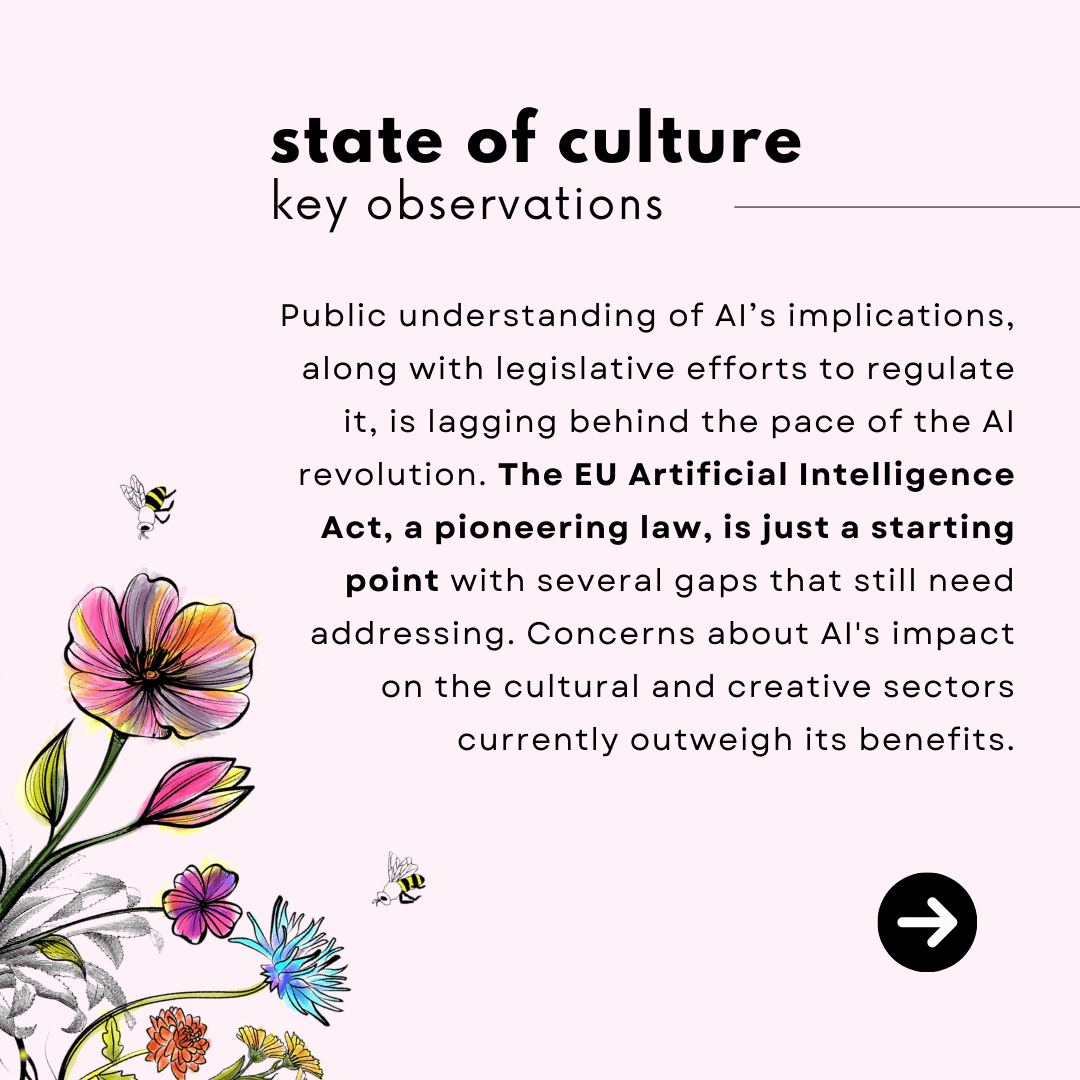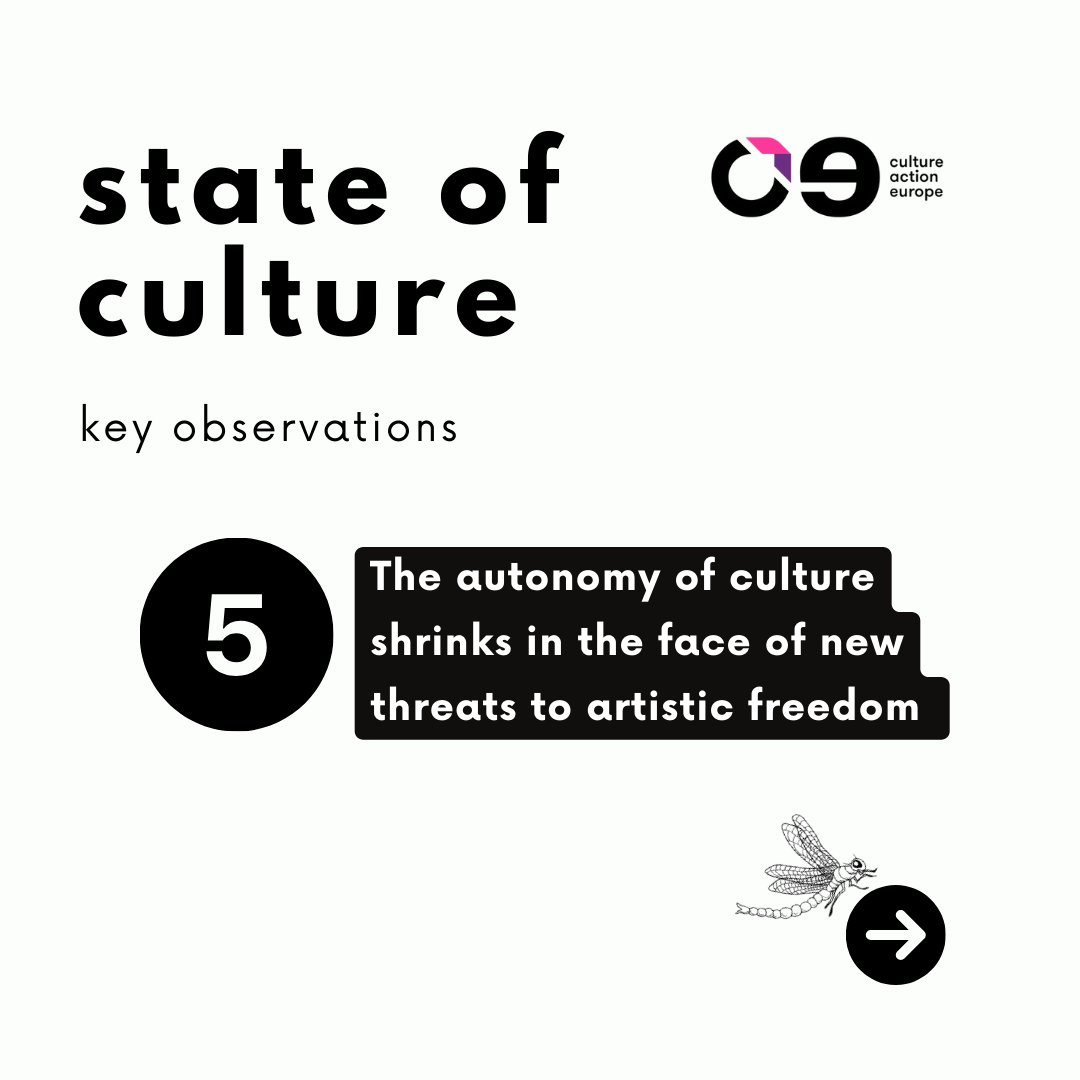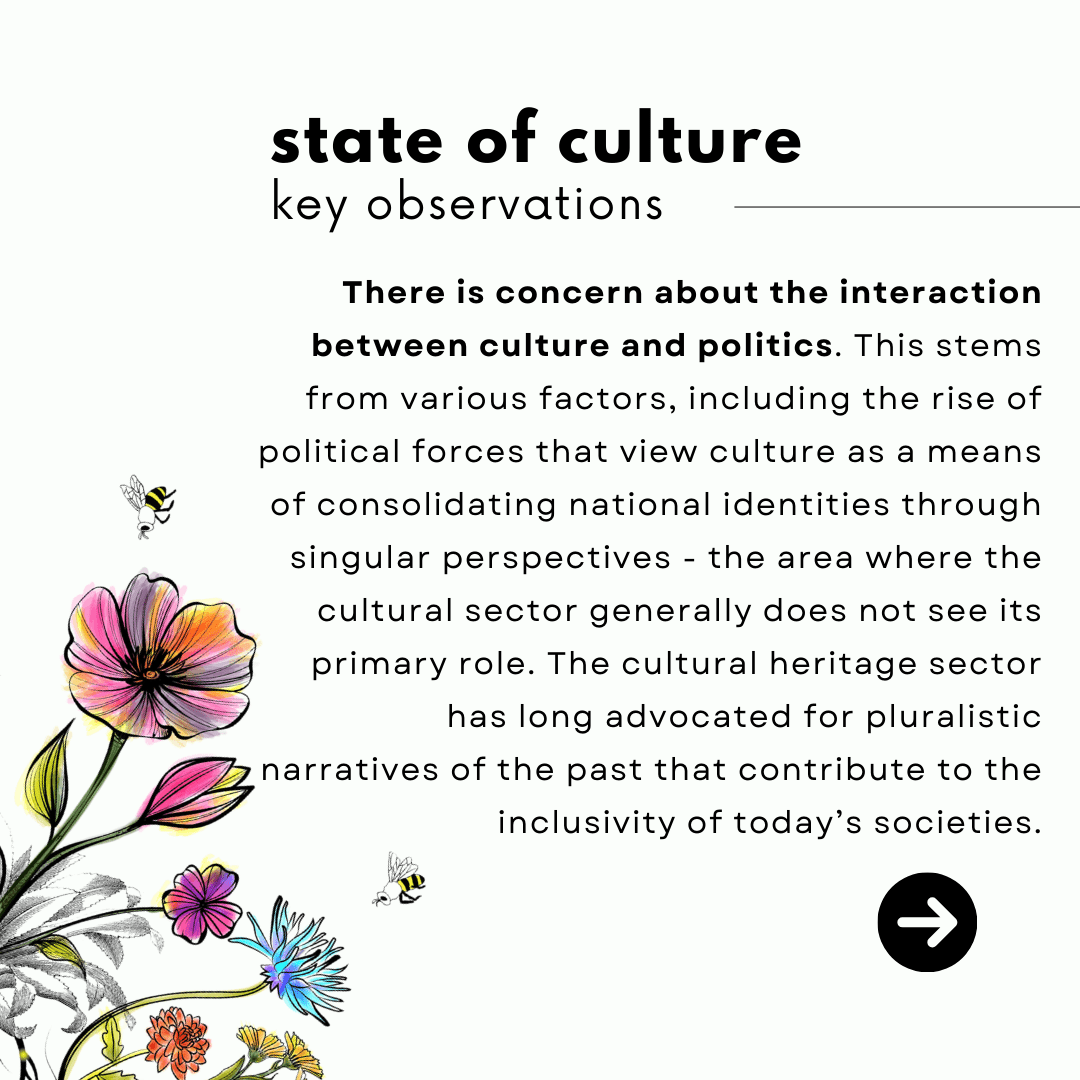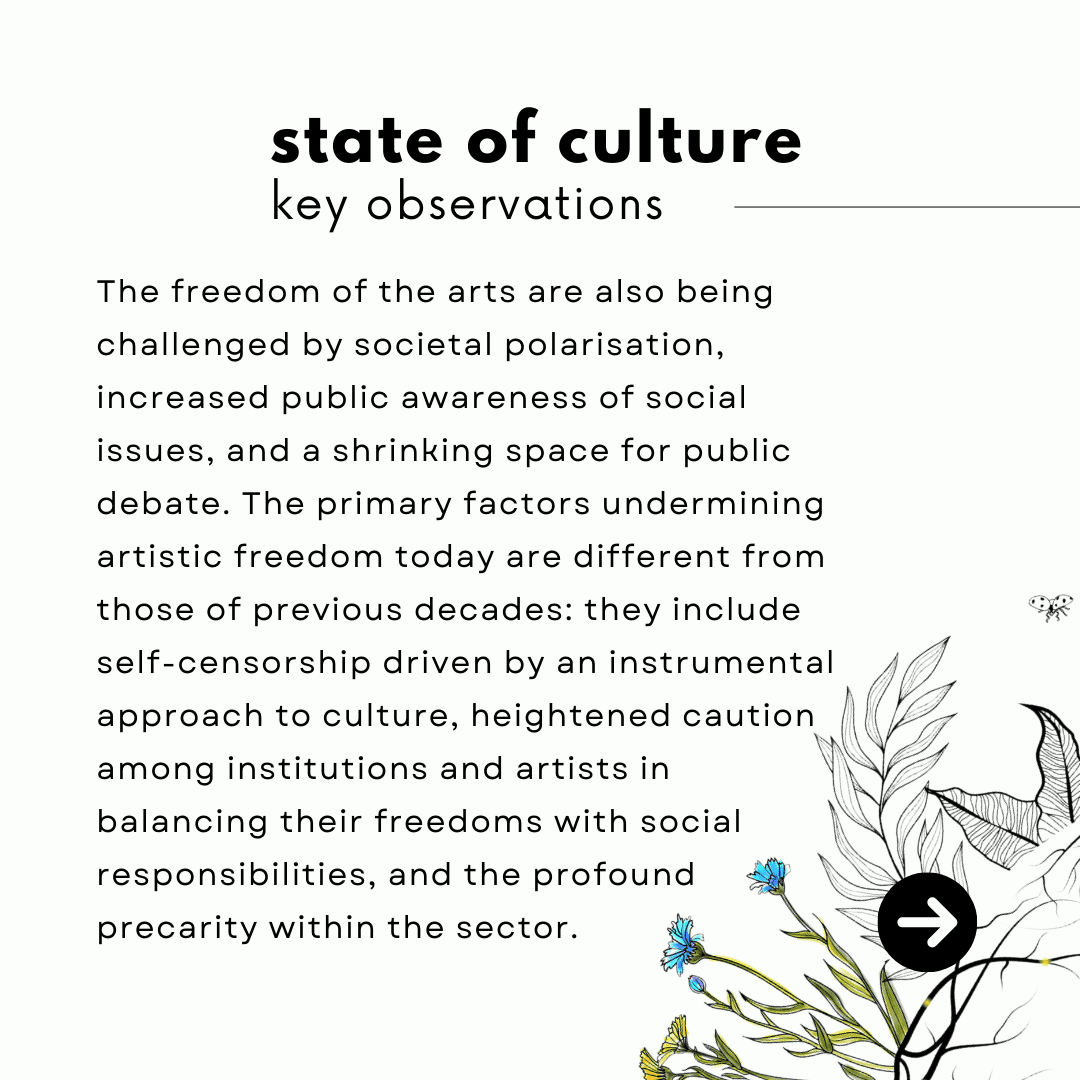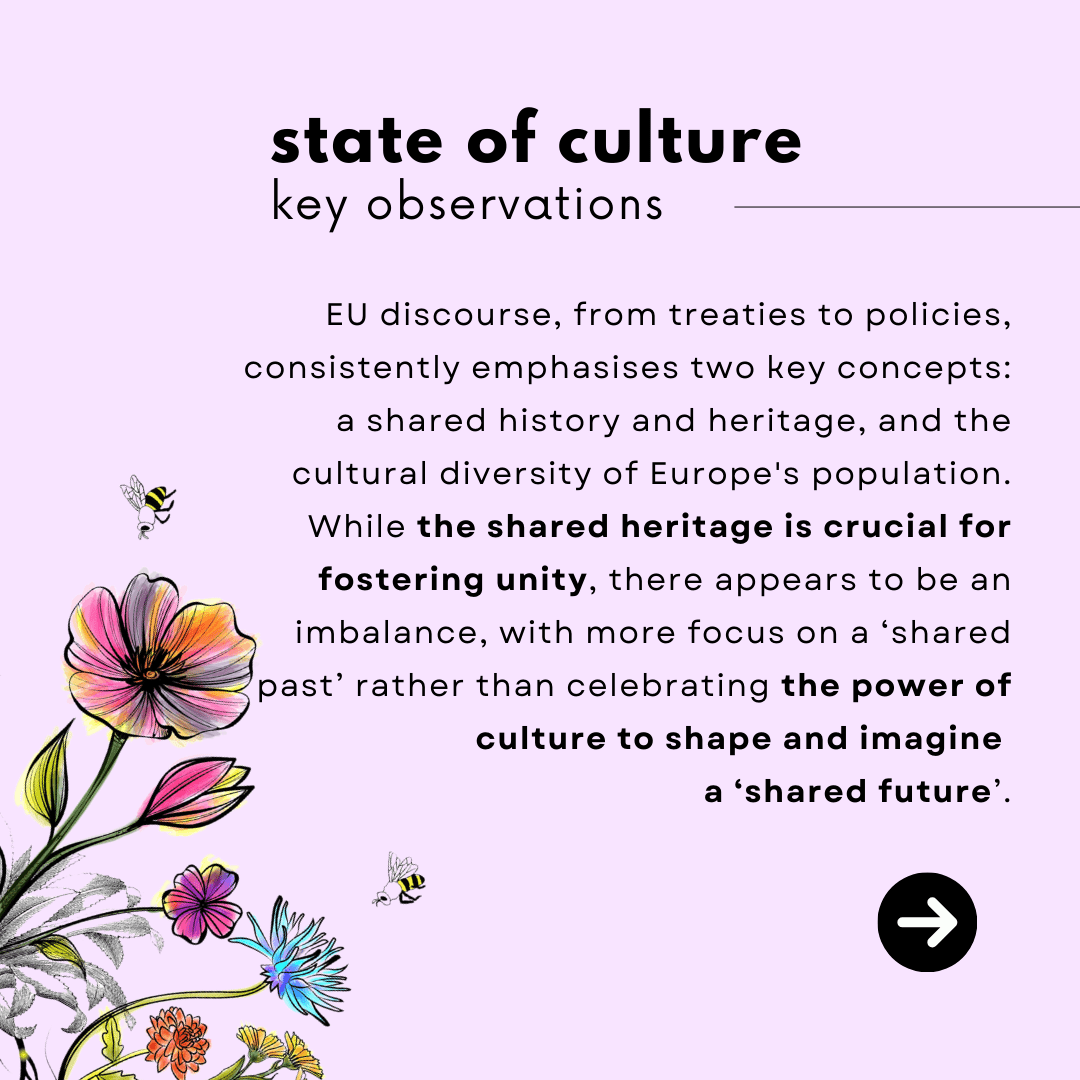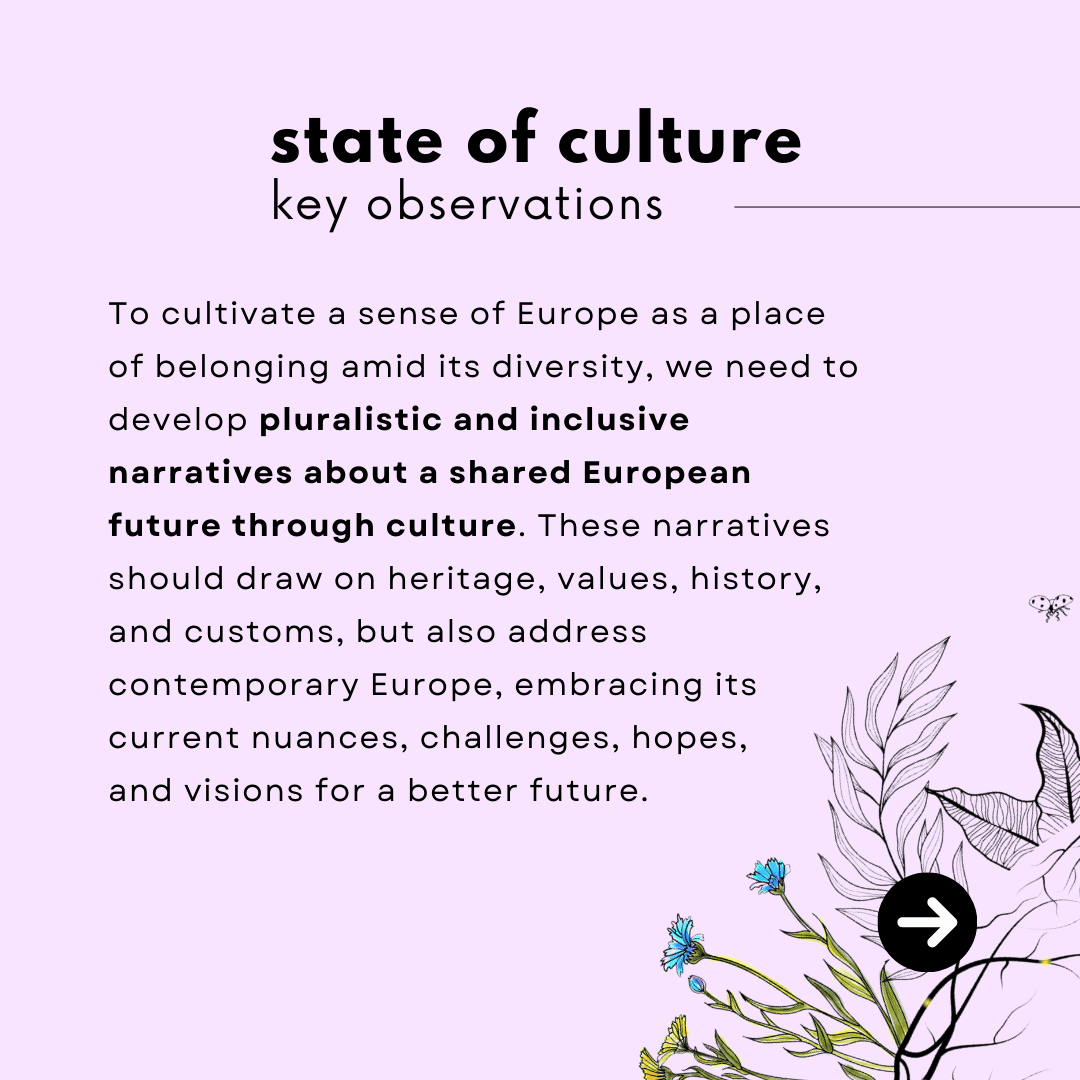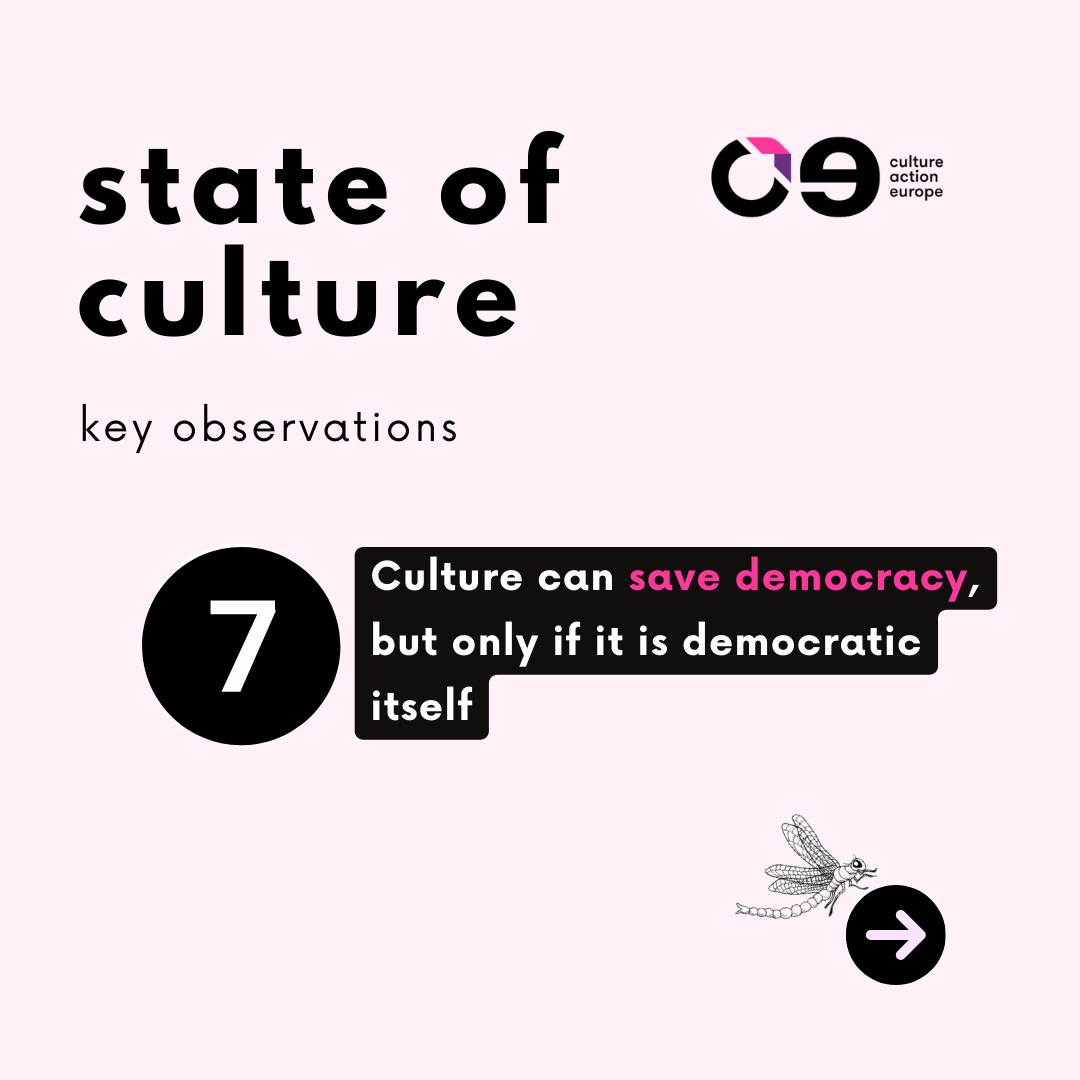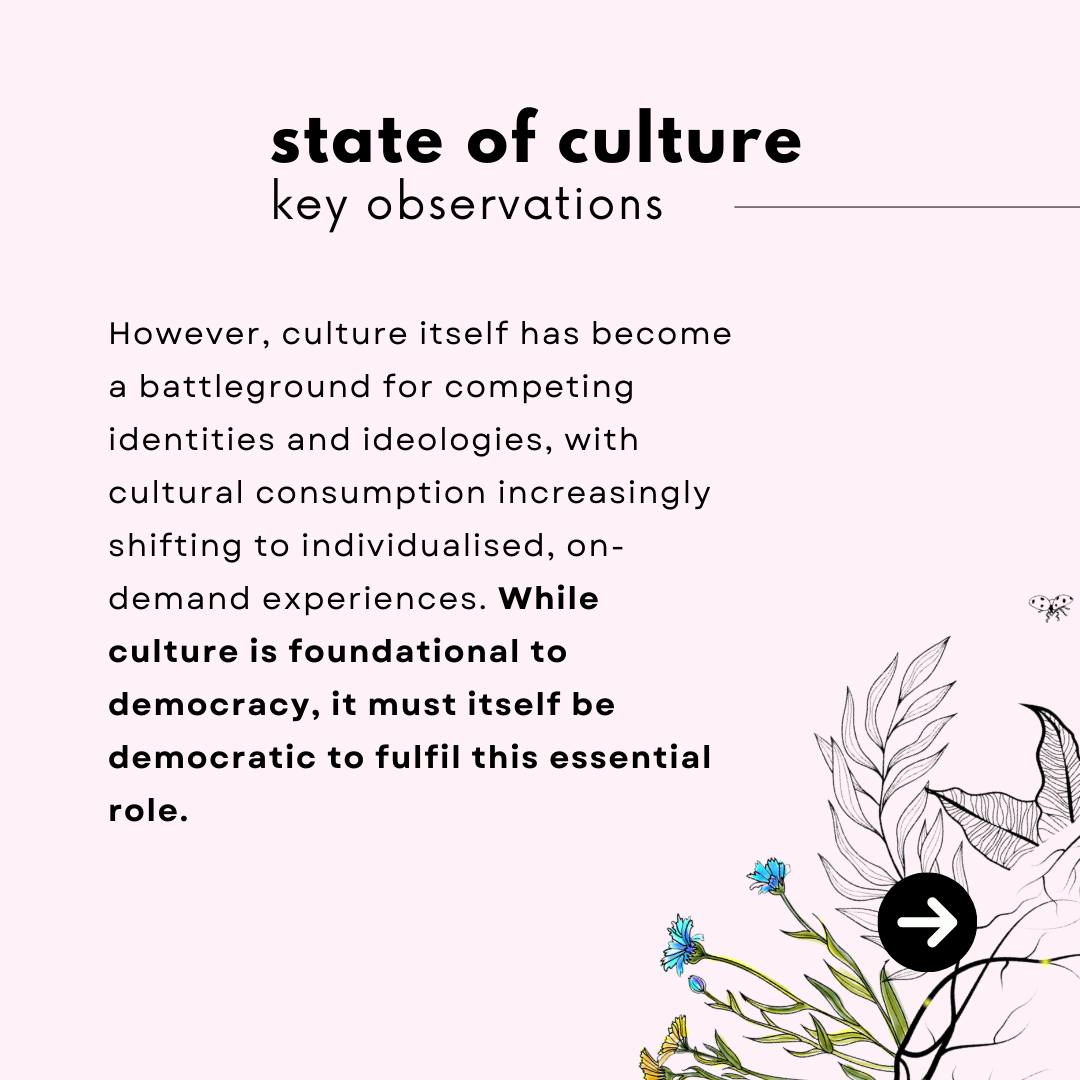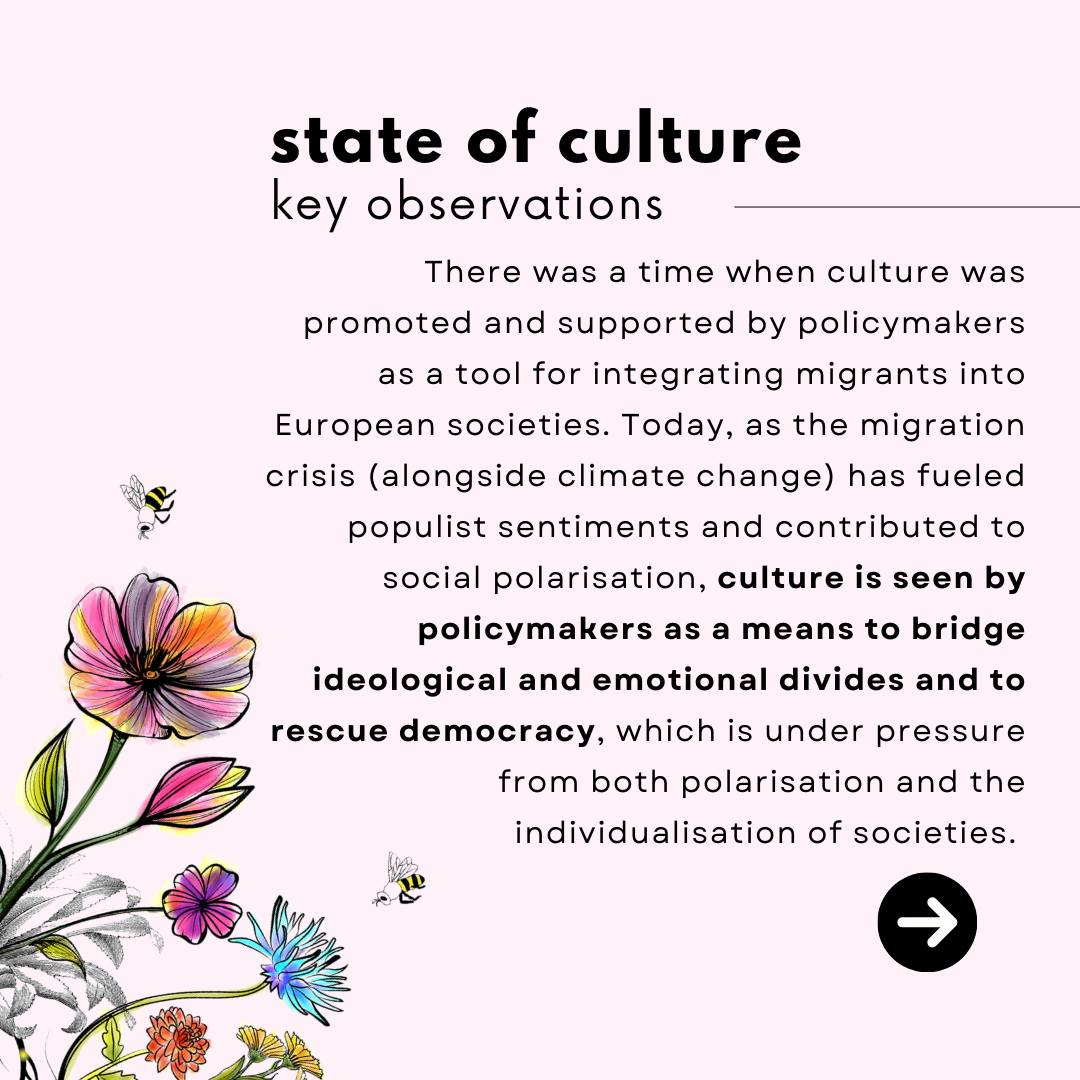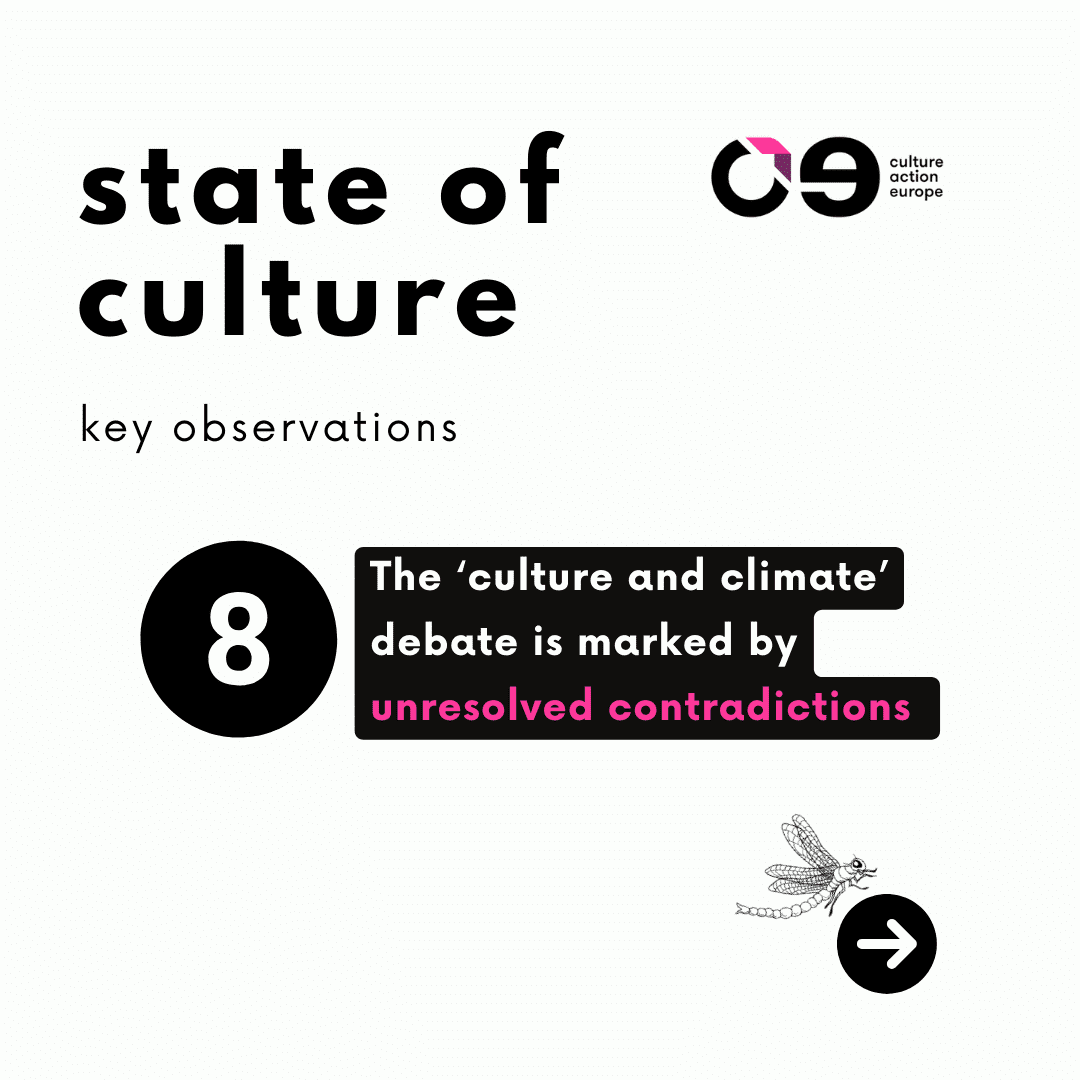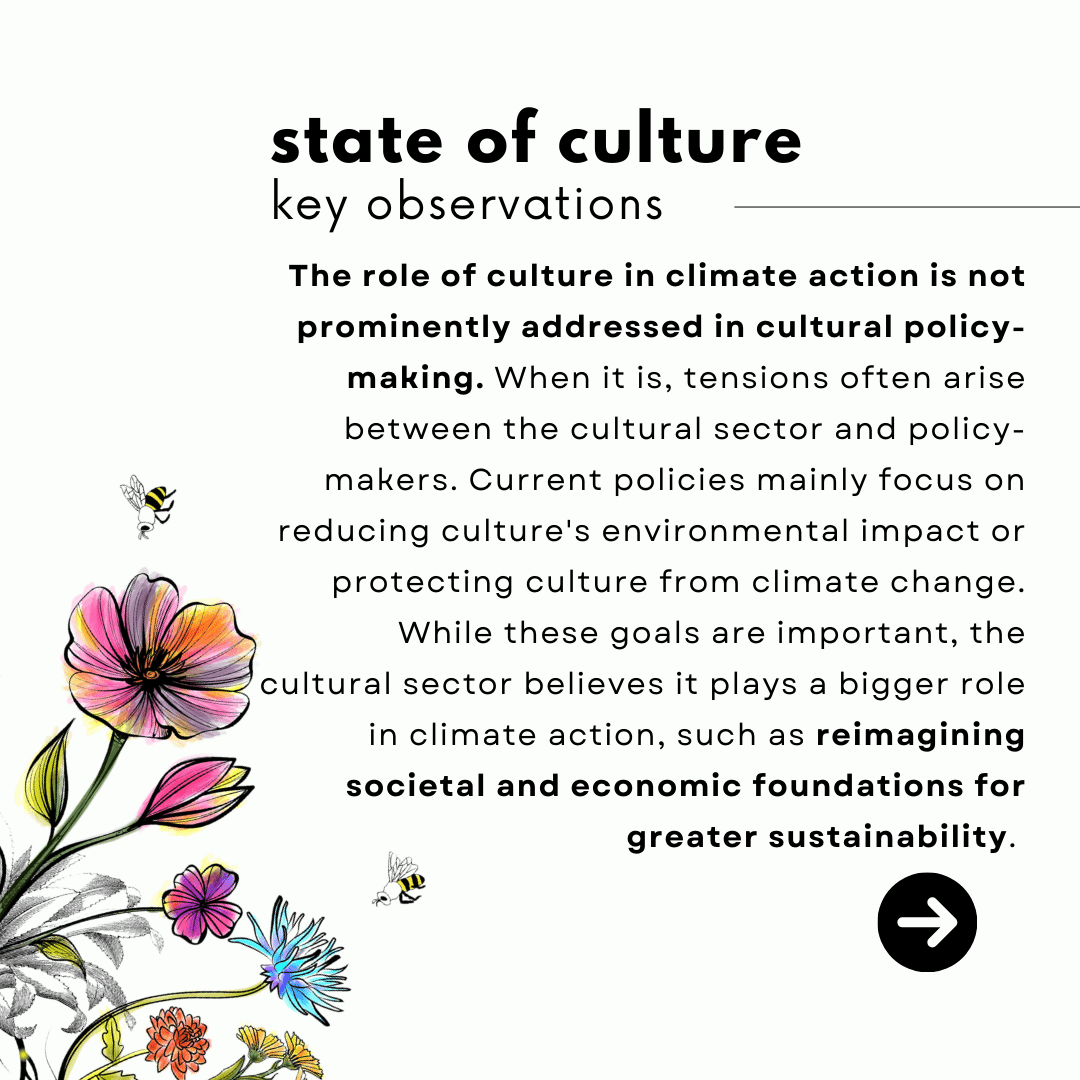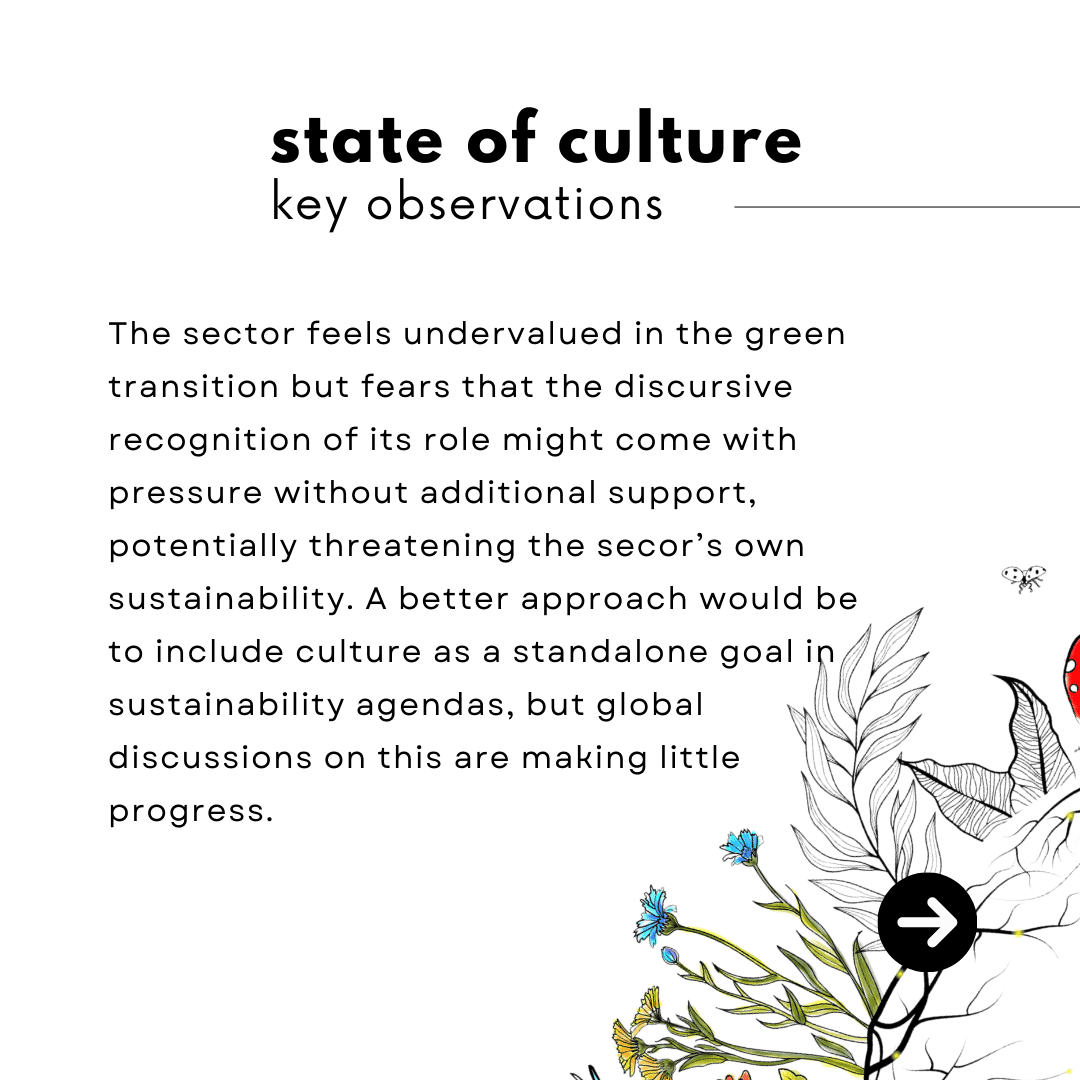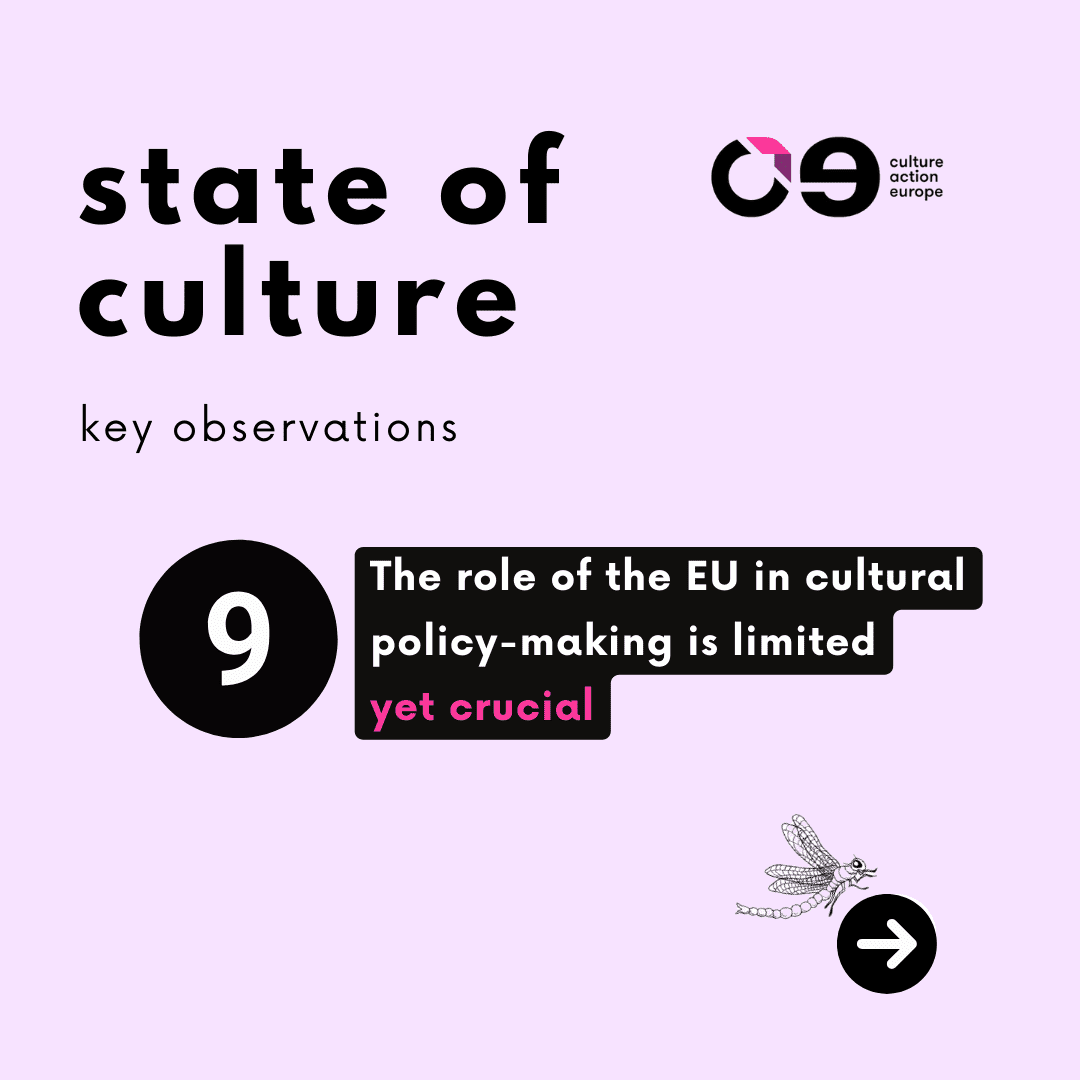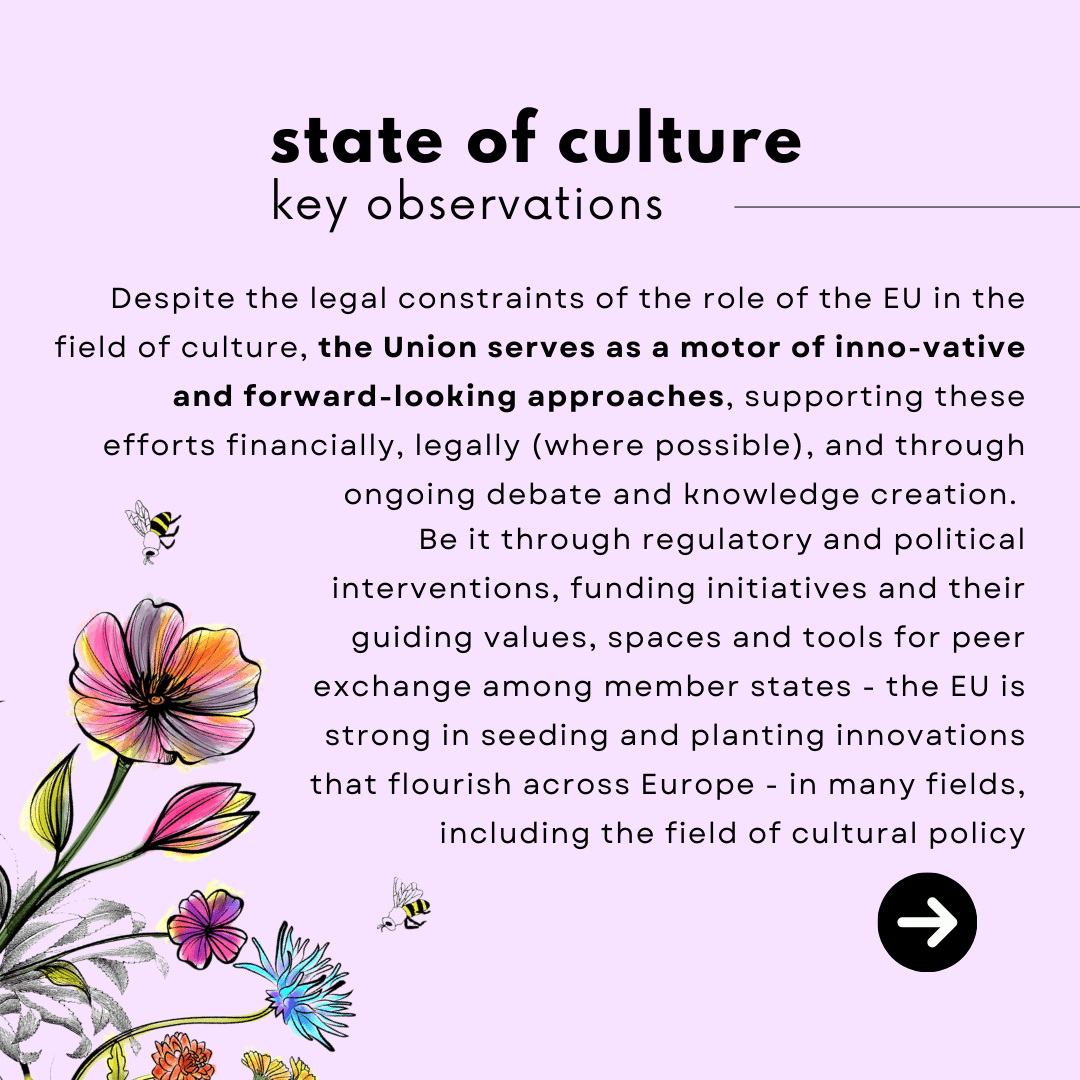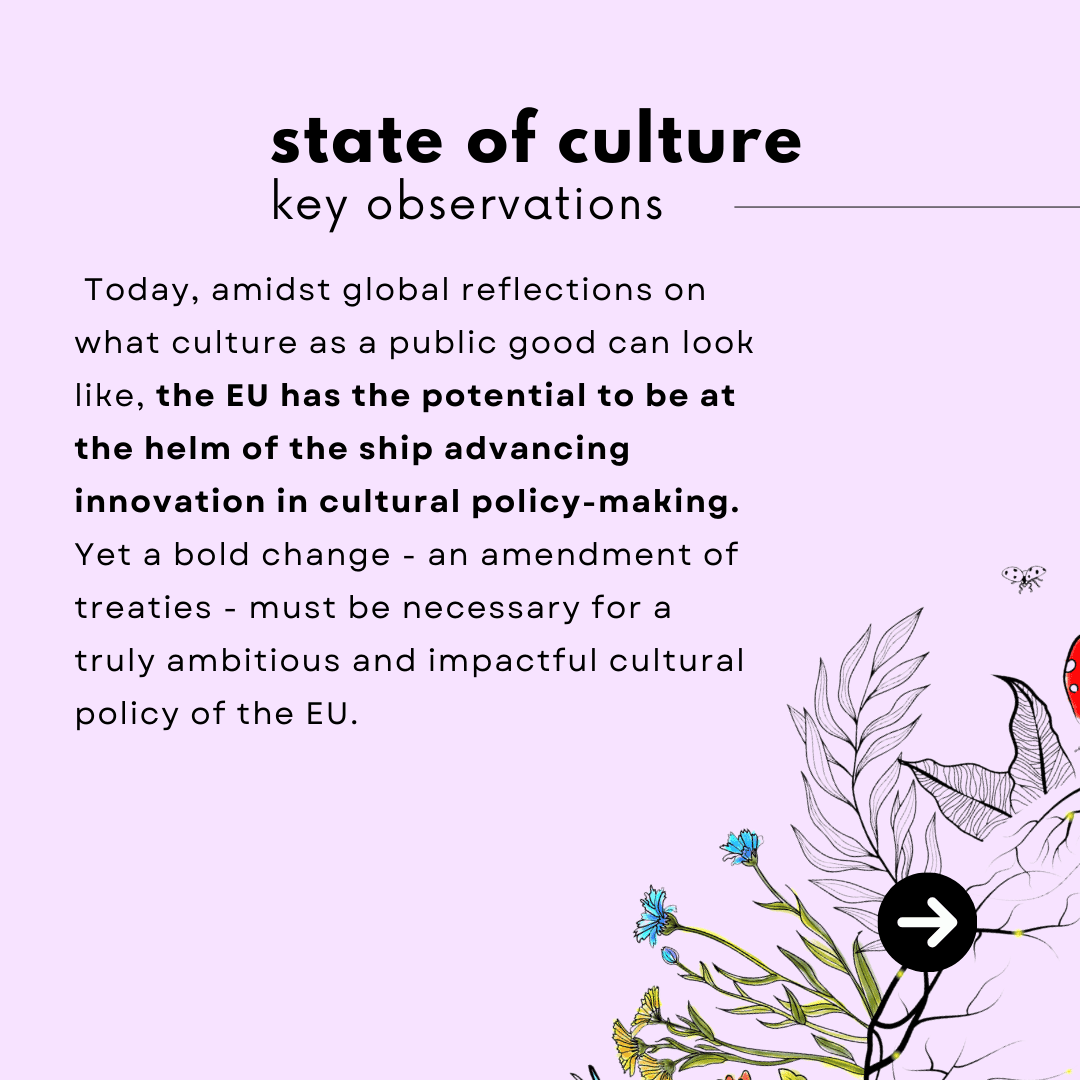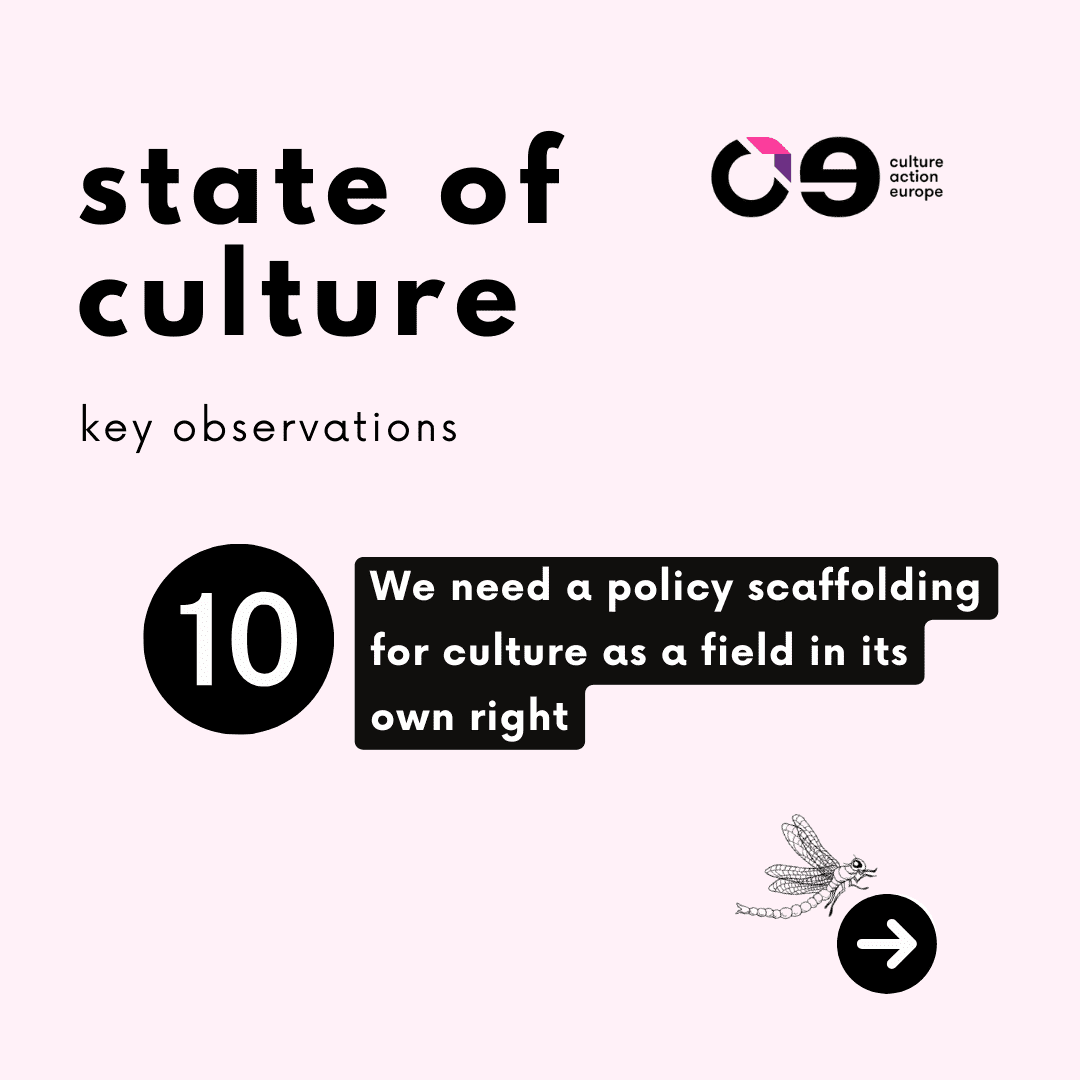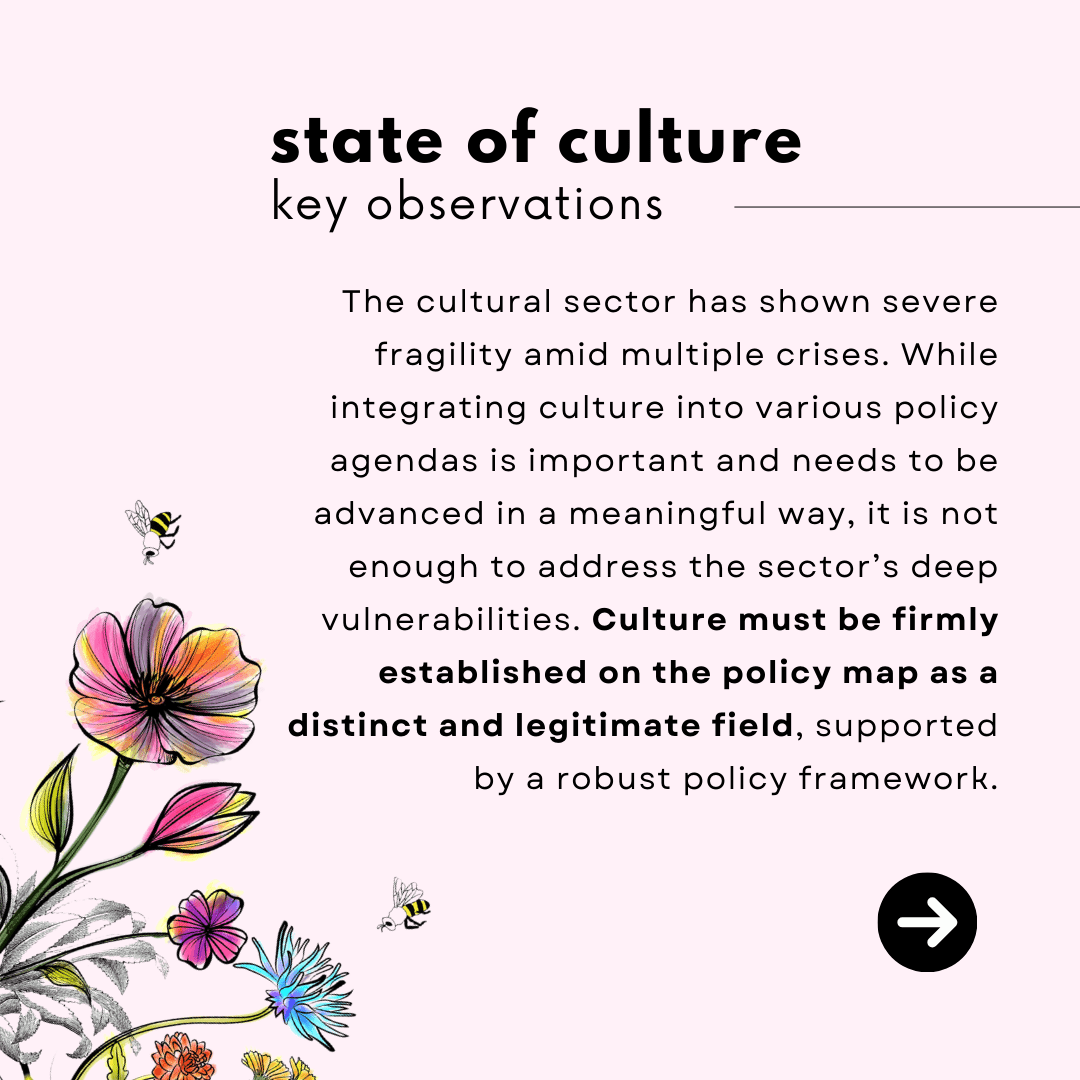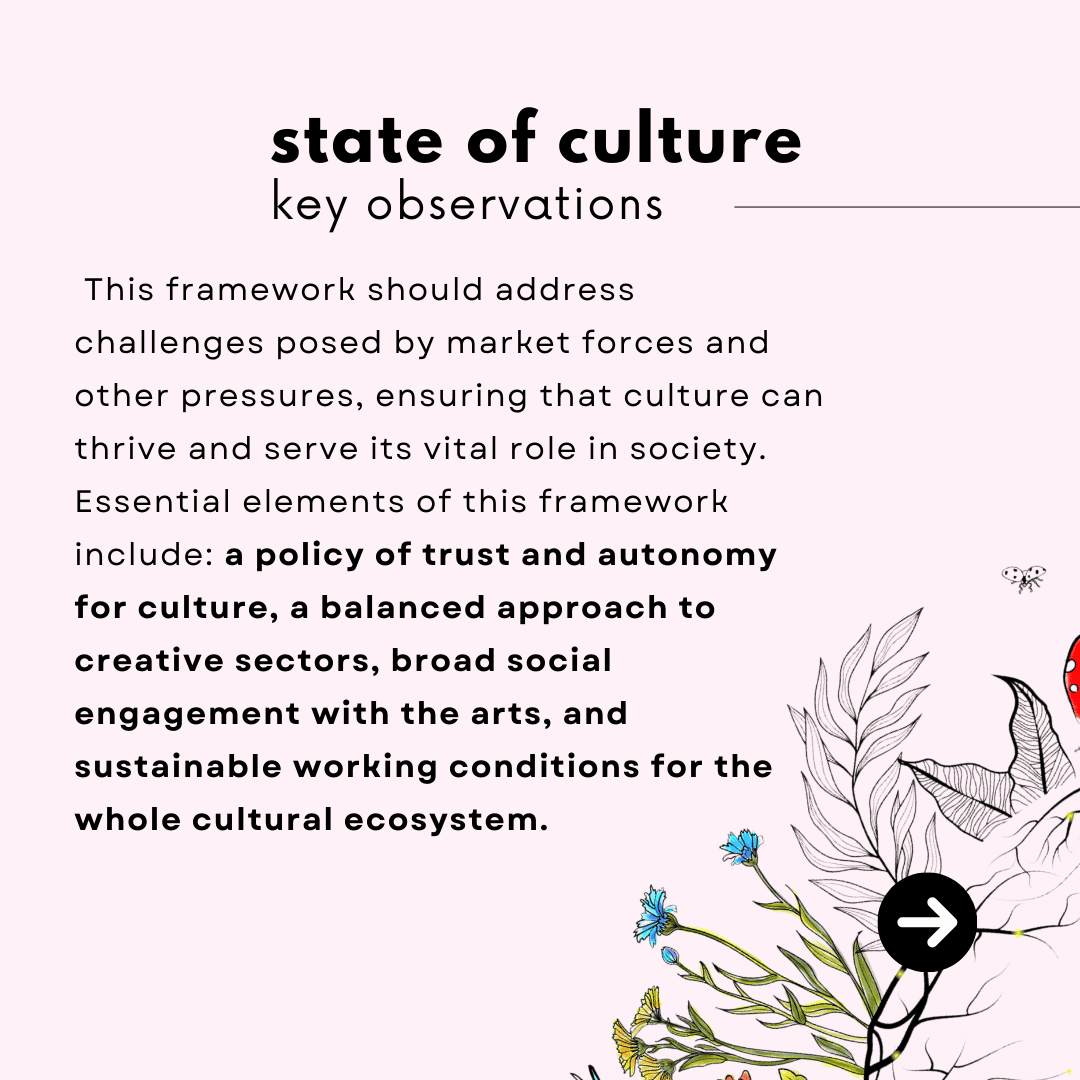“Yeah… absolutely, so no answers, only more questions.” Culture professionals shared their questions, reflections, and feelings about AI, discussing how we relate to AI from the position of culture during the second online State of Culture Webinar.
What role are cultural institutions called to play in AI development and the shaping of a new society? Is it necessary to put AI at the centre of the conversation, or does this prevent us from addressing the questions of who is creating these technologies and how they are being deployed? Ultimately, how can culture professionals engage in the negotiation of these infrastructures that are transforming society, while resisting an opportunistic use of their data as training material, when everything is evolving at such speed?
We watched the recording of the second episode of the State of Culture webinar, “Culture, Digital & Artificial Intelligence,” and took notes on the participants’ interventions. They raised critical questions and shared their viewpoints and experiences. We are sharing them here in an effort to expand these conversations, which deeply affect us as culture professionals. This is about helping each other situate ourselves in this new environment and finding “a field that is ours,” as one participant put it.
The session was organized on December 10 by Culture Action Europe and facilitated by Burak Sayin, who introduced the State of Culture initiative and highlighted significant development on a policy level.
“The state of culture is a non-academic policy research initiative aimed at exploring how culture’s role and value are framed in cultural policies at both National and European levels; it also aims to gather insights from Key stakeholders in the cultural and creative sectors on key challenges and opportunities they face in the present world.”
On the European level, significant developments include:
- The AI Act (effective August 1, 2024) introduces a risk evaluation framework for AI applications.
- The European AI Office was opened on September 30 to ensure AI applications are safe and trustworthy.
- Published the general-purpose AI Code of Practice on November 14.
Culture Action Europe has submitted feedback to the European AI Office and the AI Action Group, led by Michael Culture Association (MCA), is actively working on issues like ethical concerns, copyright issues and human-centered digital policies.
Some of the questions that were raised for discussion by the facilitator, addressing topics outlined in the State of Culture report were concerning the origin of the AI training data, the copyright issues, the remuneration of the artists, the reliability of AI and its impact on the cultural sector and practice.
Our notes basically constist of selected quotes from the participants interventions, as following.
“…what all of this topic it’s you know generates in me it’s a lot of uncertainty. We are in a in a quest you know for again keeping up to speed of a technology, of a reality, of a framework that it’s ruled by values and principles that have not been defined within the cultural and artistic scene and that by doing that we are assuming even the language; we are assuming an attitude and we are assuming a set of norms that it’s already predetermining and predefining what we do.”
Rocío Nogales Muriel
“Maybe I want to challenge you a bit on one thing that you said in your introduction in terms of it [AI] gives us access to, it makes art and culture so much more accessible, and I’m wondering if that’s really the case or if that’s the case for a privileged group of people because is it access for those who understand this kind of technology also who have really access to these tools, who really can make use of it. Maybe yeah… absolutely so no answers, only more questions.”
Katharina Weinert
“What we have seen rising since 2018—but it sort of went overboard completely in 2024—is scraping of our 5,000 photos. So this year, for the conference, I had sort of the last count, the last numbers, which was the beginning of November. We had 23,600,000 hits since the 1st of January. And this is for 5,000 photos. So for us, it’s clear we’re being used as a training basis—and we don’t have a chance in order to prevent them. […] it’s something that, when we talk about cultural impact on AI, it’s our content that we are bringing into it.”
Alex Meszmer
“I would love to have a session on AI where we agree that no one’s actually going to mention AI where we actually going to be talking about the things that are at stake you know the people the companies who are making decisions that are actually having impact on us because at the end of the day it’s not necessarily that AI is the problem. Like all of these questions that I have, that we’re raising right now, they existed with all of the other digital technologies and even non-digital technologies. It’s just that AI is so pervasive and it impacts us on such a massive scale that all of these questions become so much bigger, so, now we’re kind of in the situation where everything is about AI, whereas what I would like us to talk about is actually what’s behind AI who are the people who are the companies that are making decisions and shift the conversation in that direction.”
Rasa Bocyte
“I think that the most important thing is the new way of thinking about AI [is] not to decide if AI is this or that, but the new way of thinking. The main point that the lady before me mentioned is that we would like to speak about the new anthropology, the new society, and the new way of thinking with AI—not especially about these tools or agents. Because everything will move from AI to another kind of society, and this is the most important thing.”
Antonella Varesano
“And yes, I agree with you that it’s about the new way of thinking in a new society, and that’s what we’re after. But we have to think about the power relations in that new society and what kind of agency does that new society foresee for those who will be using those tools. And of course, we don’t have the answer now, you know, and that’s the thing—that’s what is so fascinating about this exercise. …
And particularly, I think it’s the role of culture and the arts to reflect collectively about how that new society would look like.”
Rocío Nogales Muriel
“She [Hito Steyerl] says we need a kind of confederalism so we need to reform, we need to change, we need to modify and actually – do we need these things? She says, not doing things can be a very important tool, so, making choices as to the types of tools you want to use and being informed about what sits behind those tools is like a big part of what Steyerl was saying and I found it really inspiring to listen to her speak and so that’s why I thought I’d share it here as well, so, thank you for that opportunity.”
Joanne Scott
“It’s so much about AI, but who are the people who are behind AI? I’m saying this keyword agency, how we promote that agency, how we developed digital competences in order to be able to have a presence become visible also within this AI and I’m talking about making visible from my migrant point of view my background of migrant.”
Catalina Quiroz
“Quite often the chatter that you hear in English media reports – whether that’s in Ireland, where I am, or UK or American Media – what you hear about Europe most often is bureaucracy and how bureaucracy is awful and it’s slowing things down and I think that’s the greatest power that Europe has is slowing things down because AI can be a phenomenal tool for all of us and decision we make is the trouble is that the people who are currently in control of AI aren’t so concerned with unintended consequences … I think as a community we could do a lot more to be vocal about how that bureaucracy, while it can be inconvenient sometimes, is there to protect us and to protect us as artists and we have very few protections that we really should be treasuring that I think.”
Ciara Moloney
You can watch the entire session here.
About the use of AI in this article: For the elaboration of this piece, we used AI to extract the full transcription of the original video in text, and for language editing. We also experimented with automatically generated summaries of the whole or of specific interventions, though we found that they didn’t reflect the most important aspects, according to our criteria, so we proceeded to a manual and time consuming curation of this piece. The characters in bold are ours and mark the points of the interventions we wanted to highlight.
Prepared by La Tempesta

